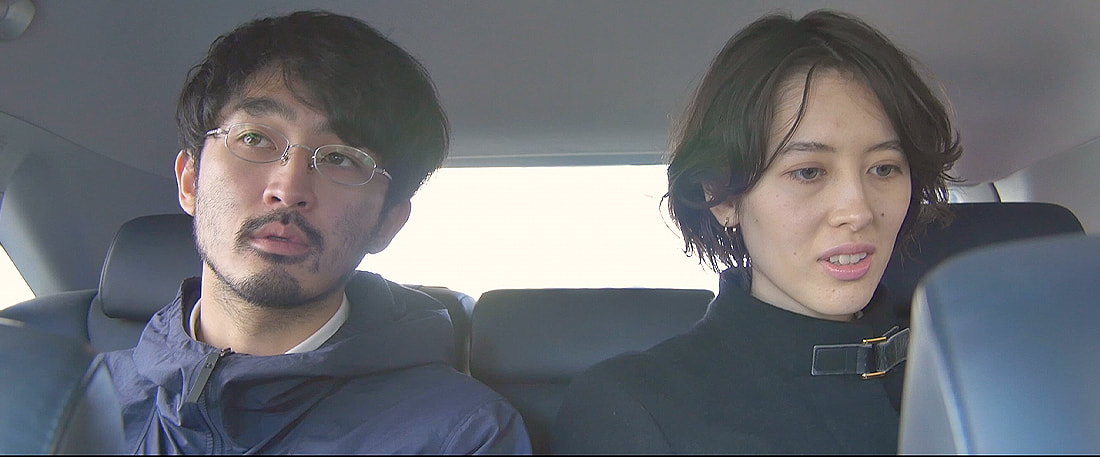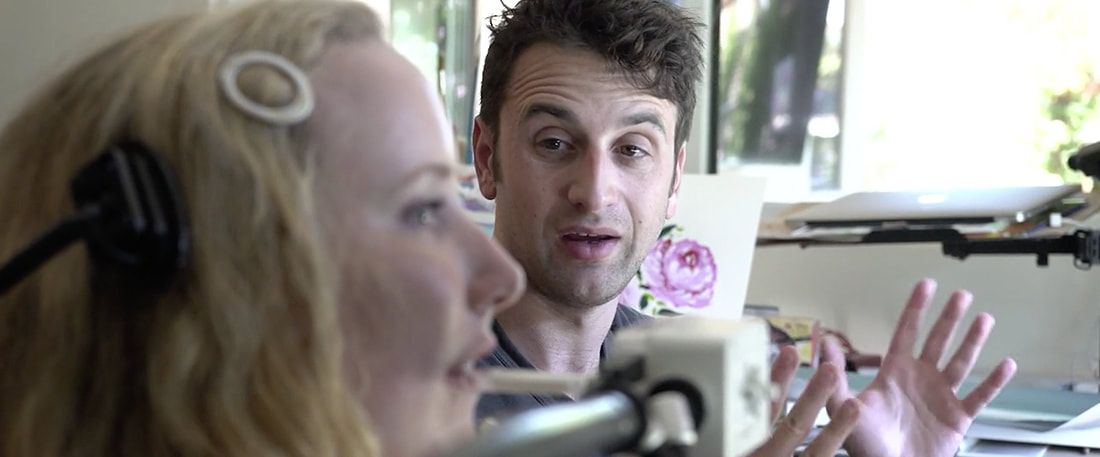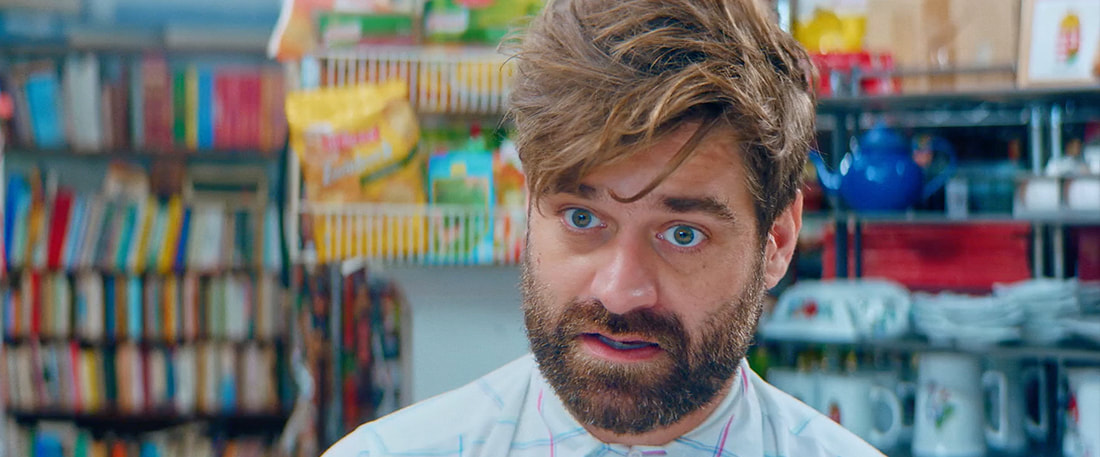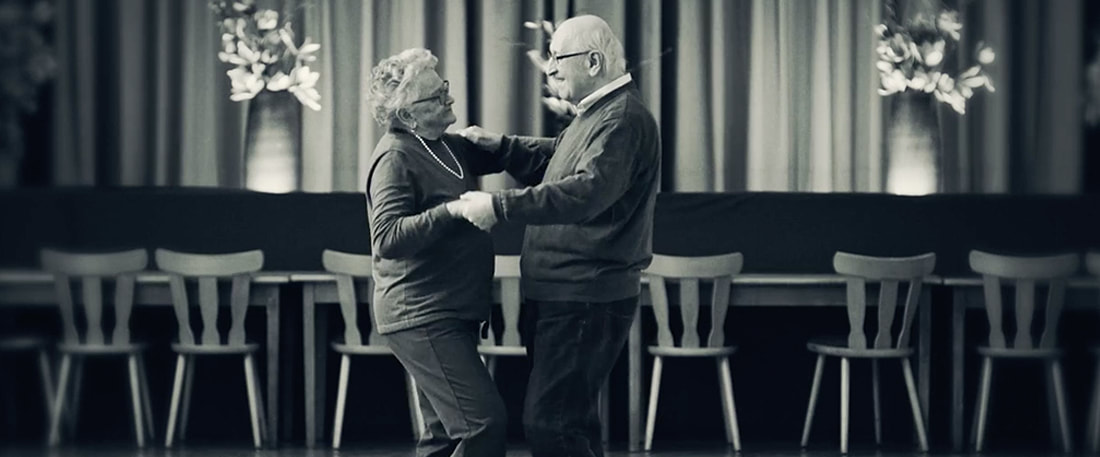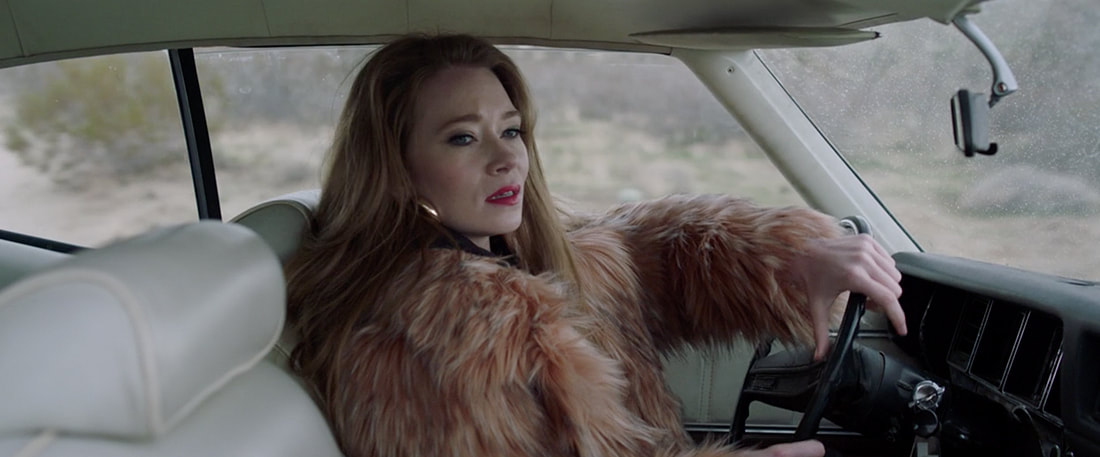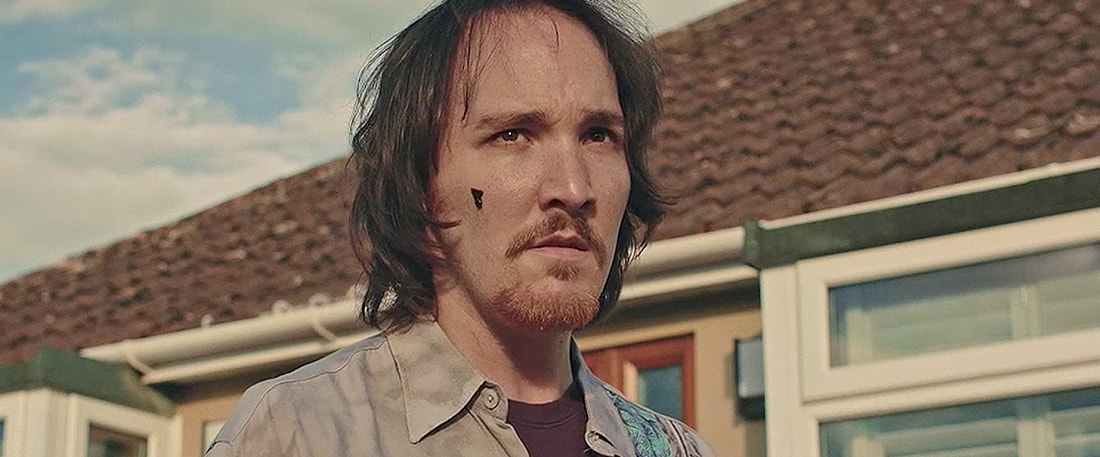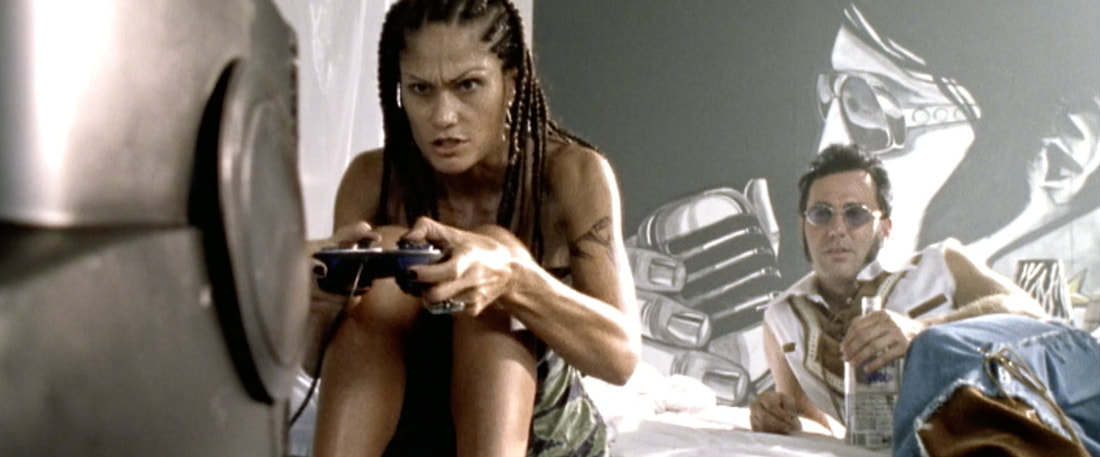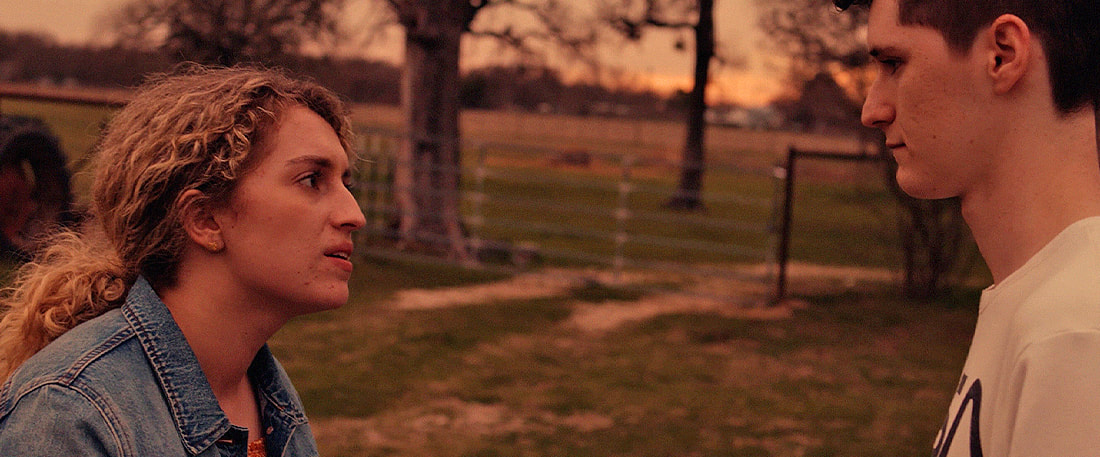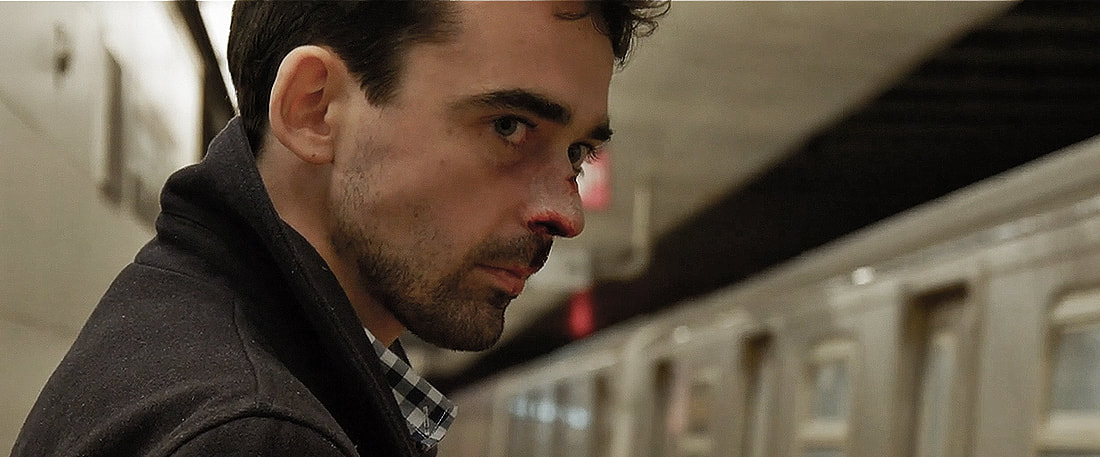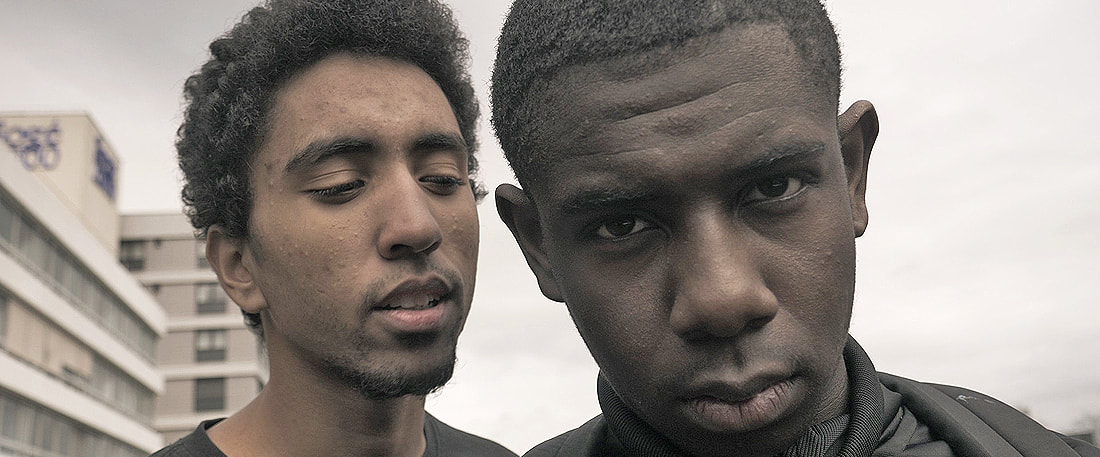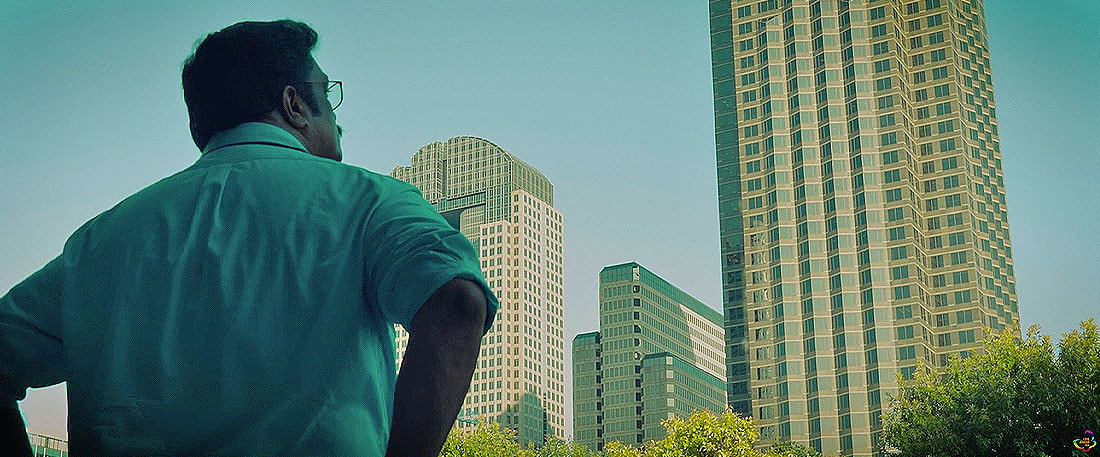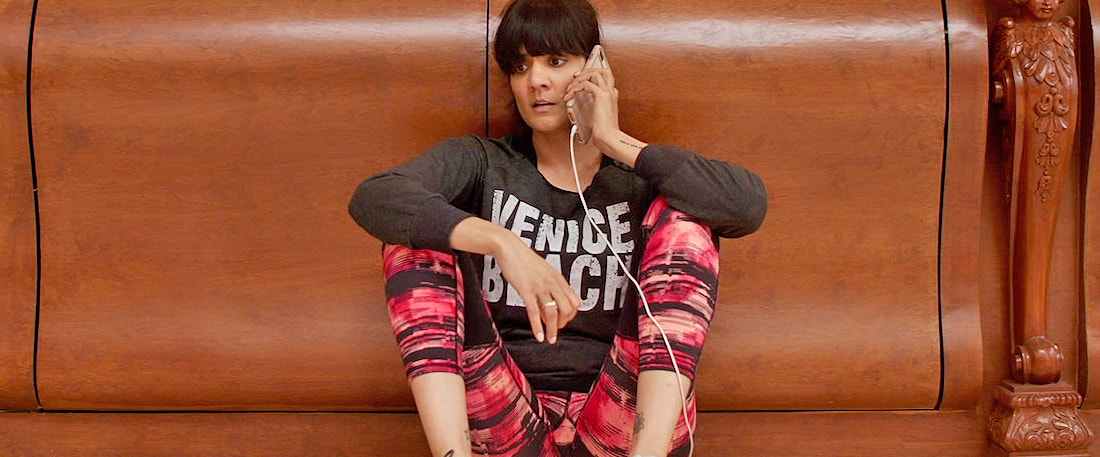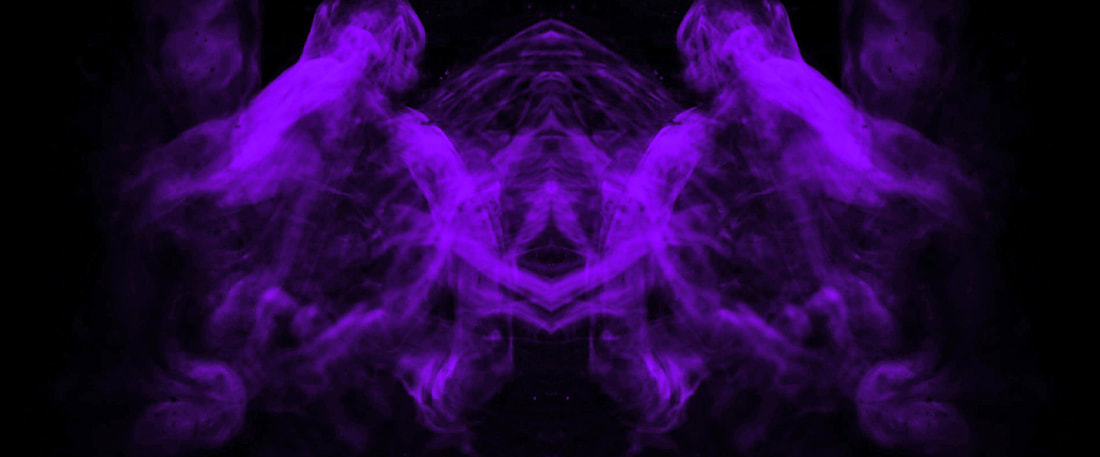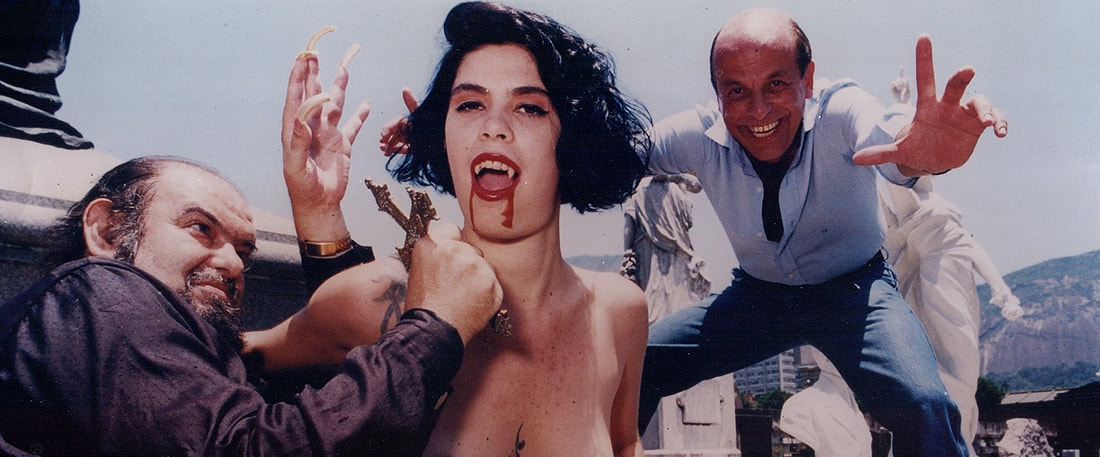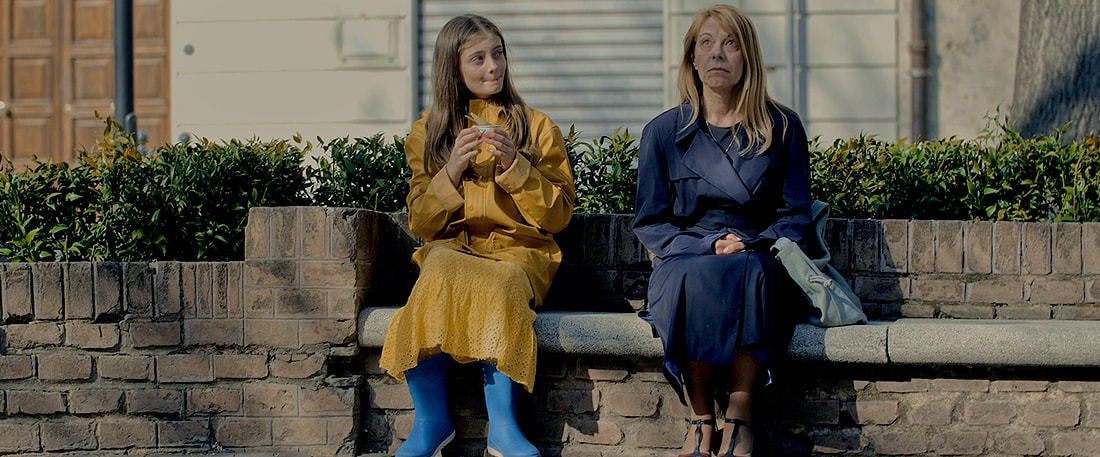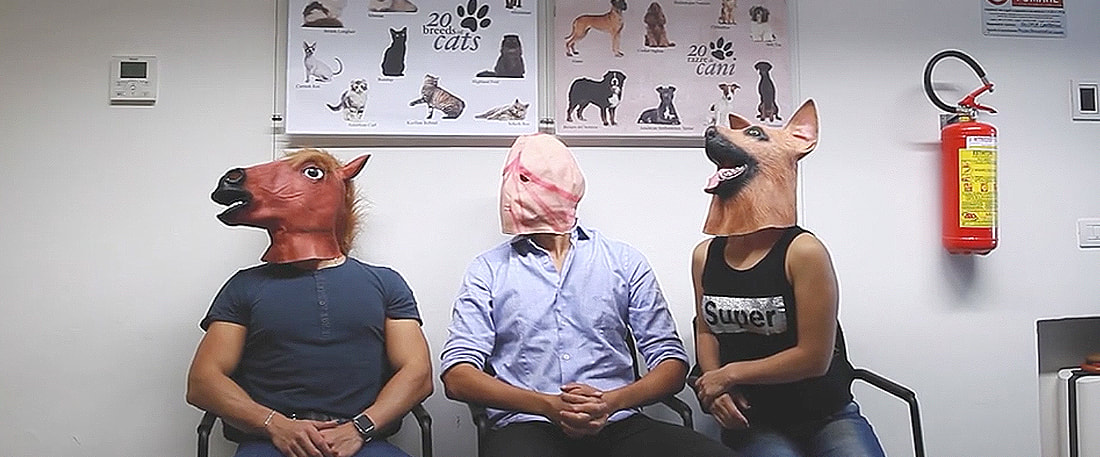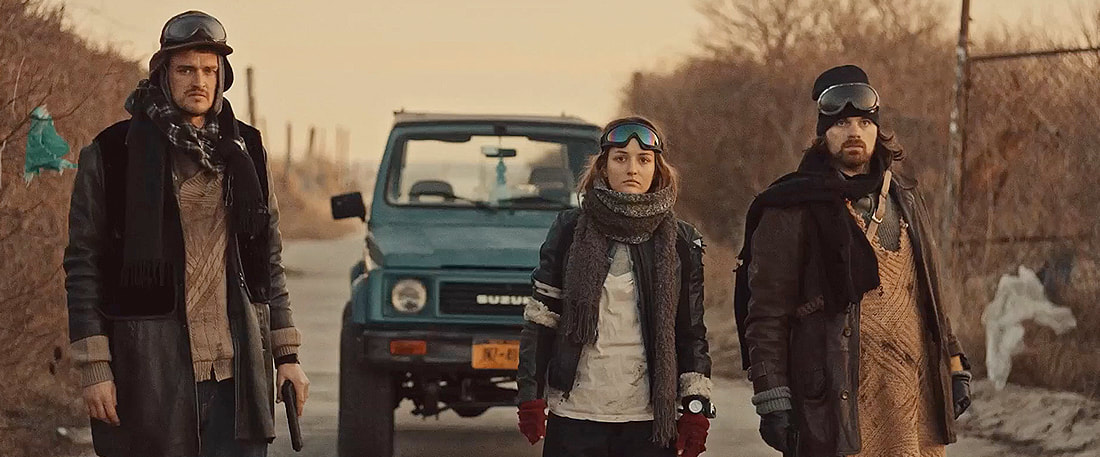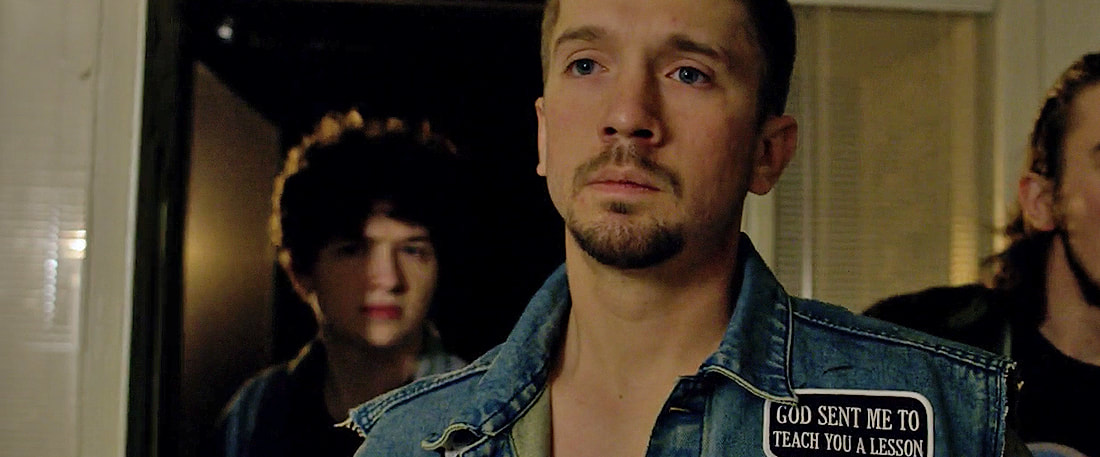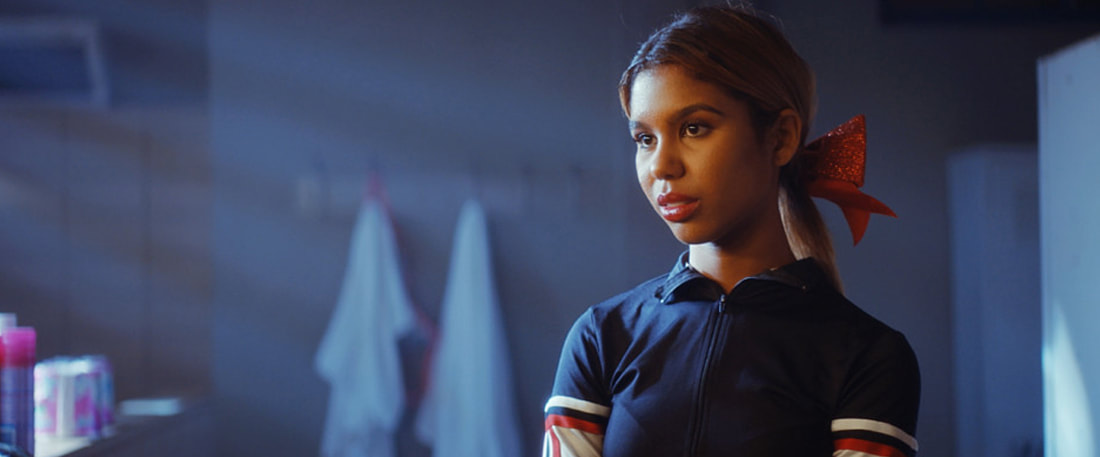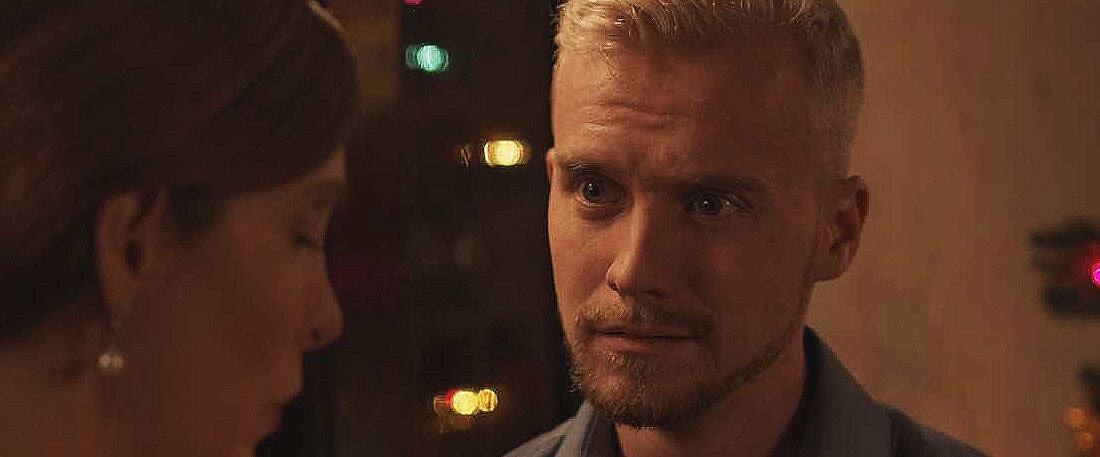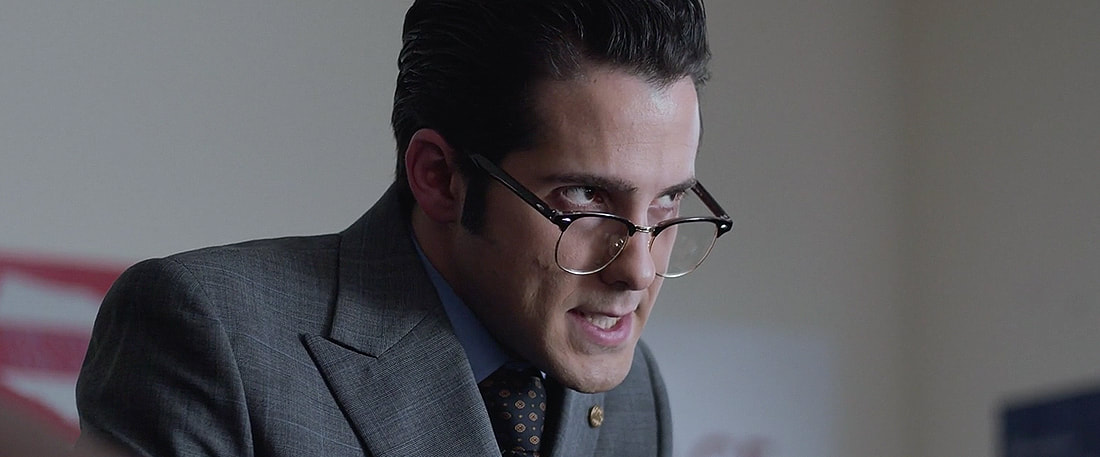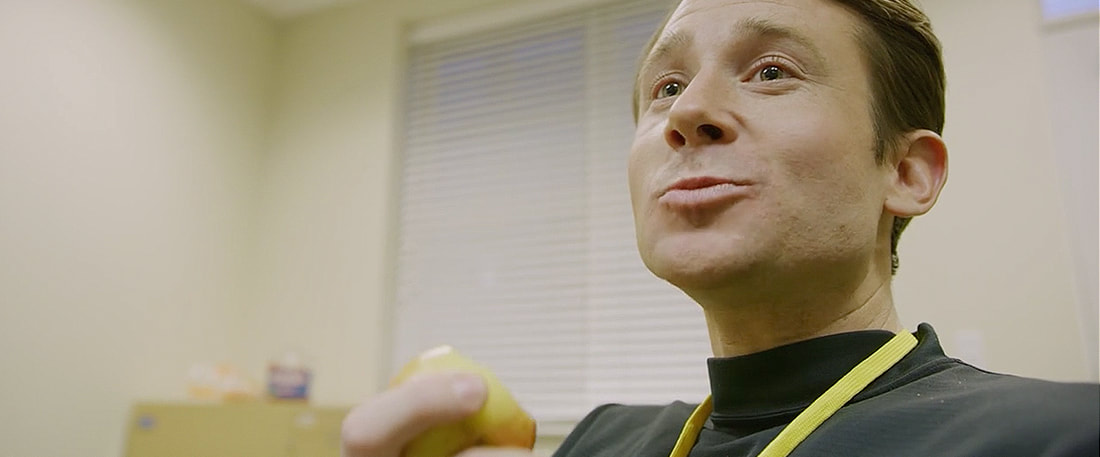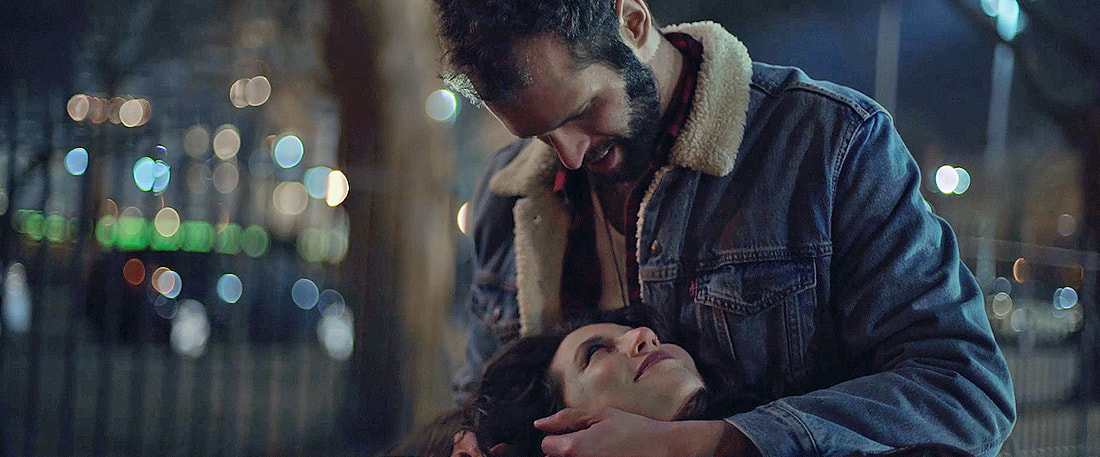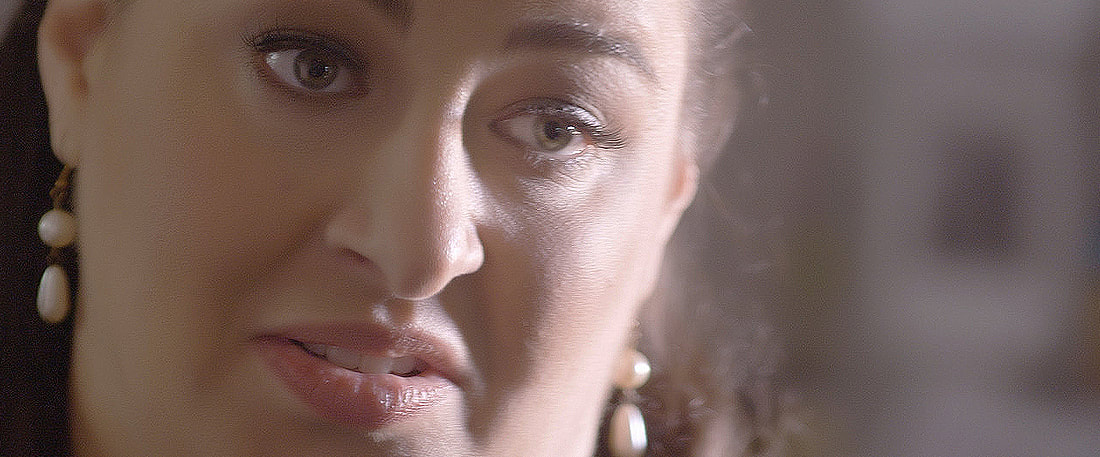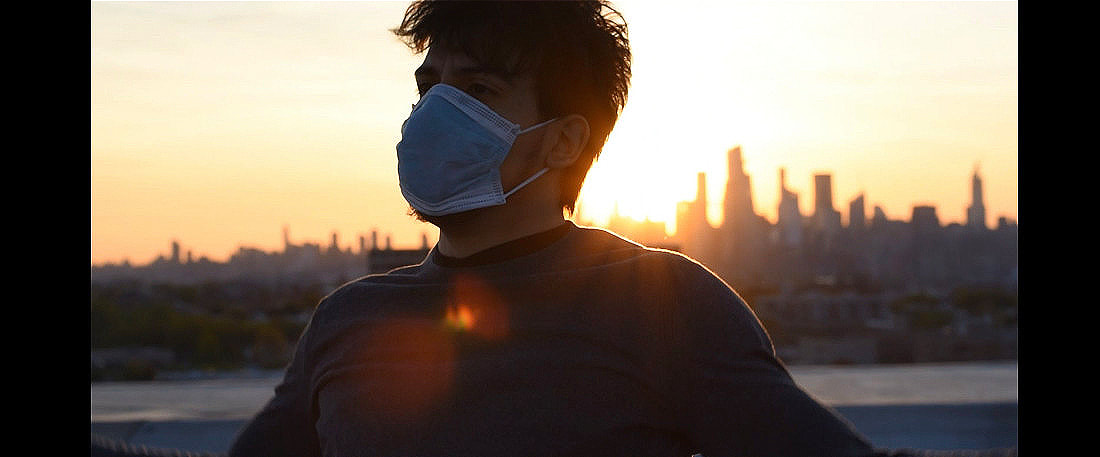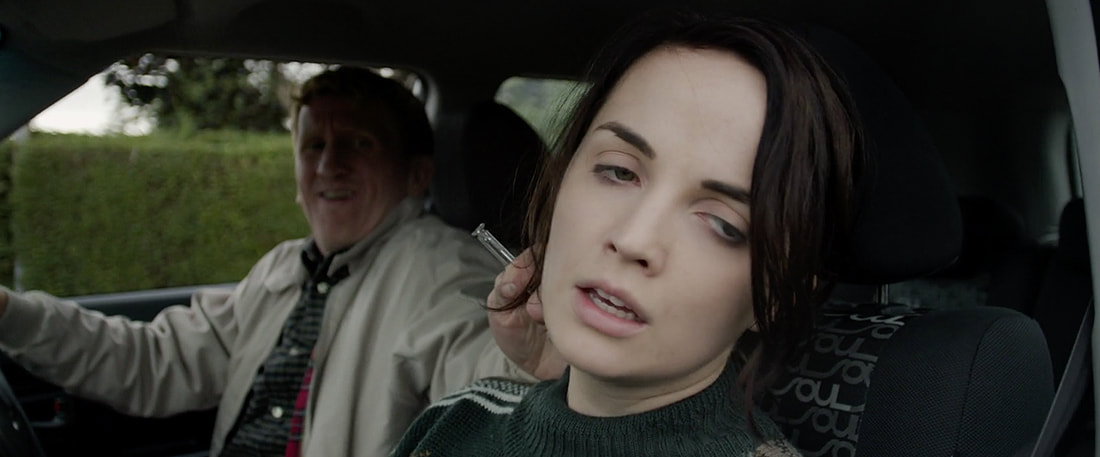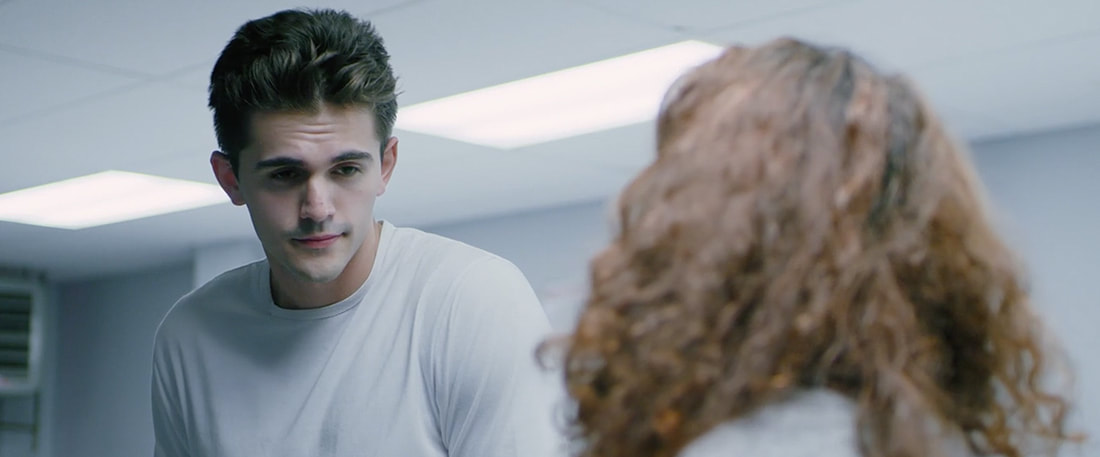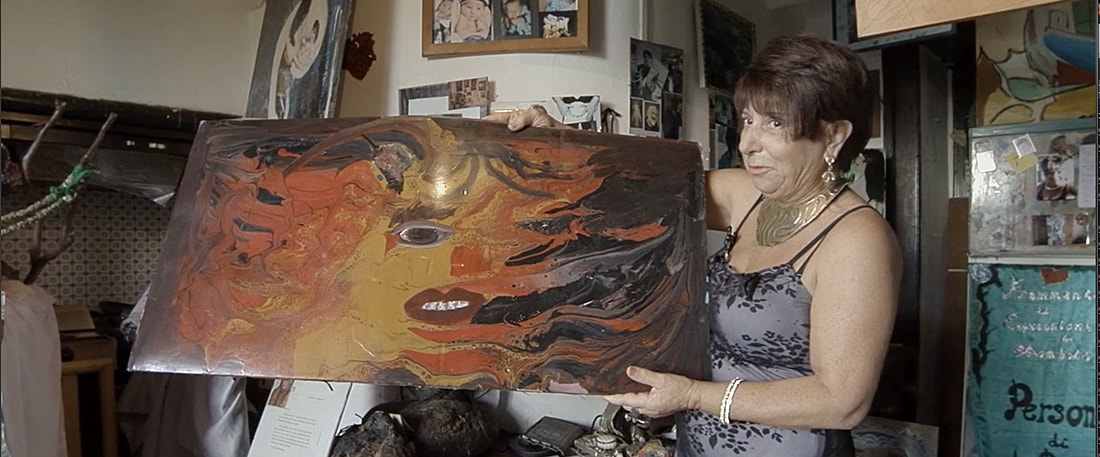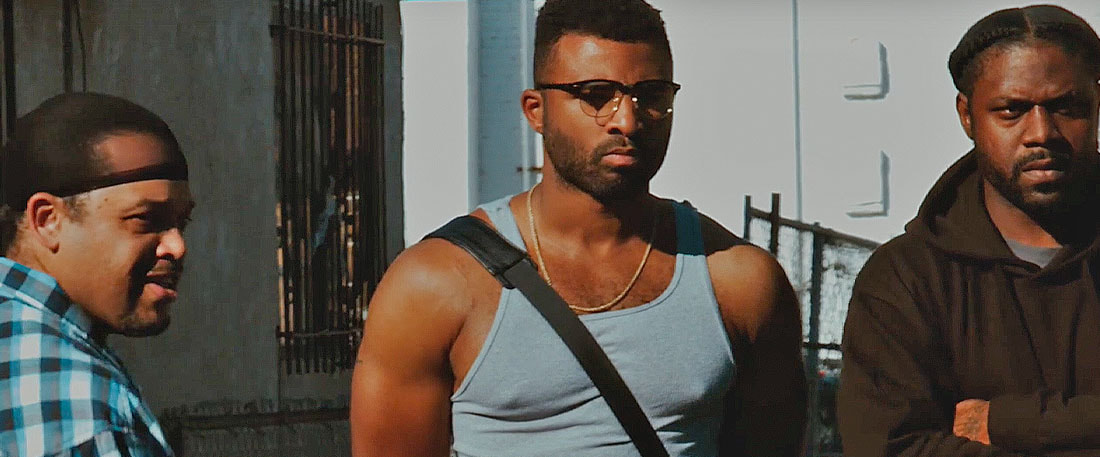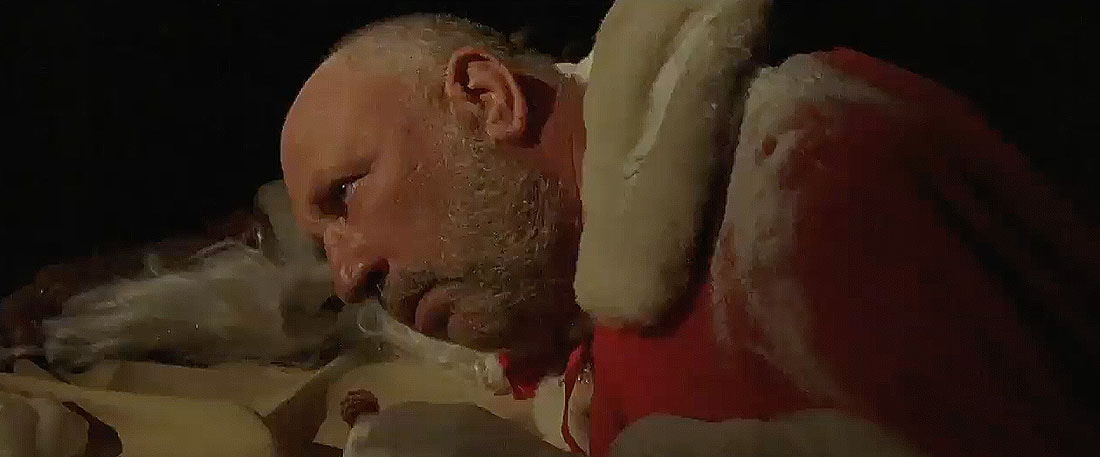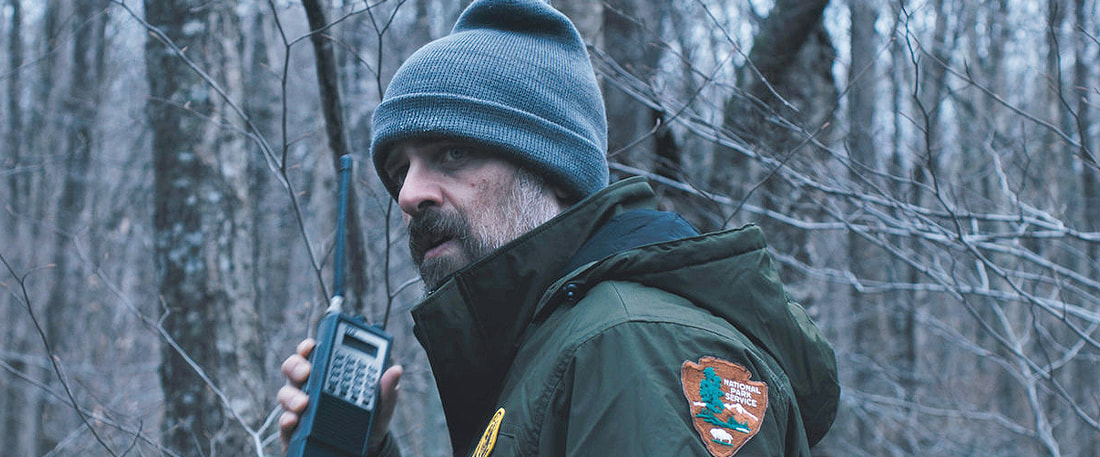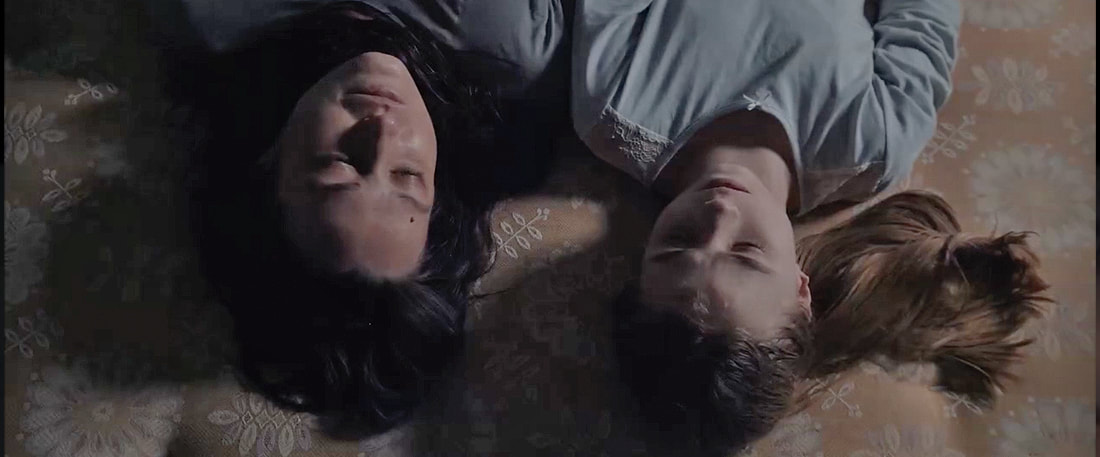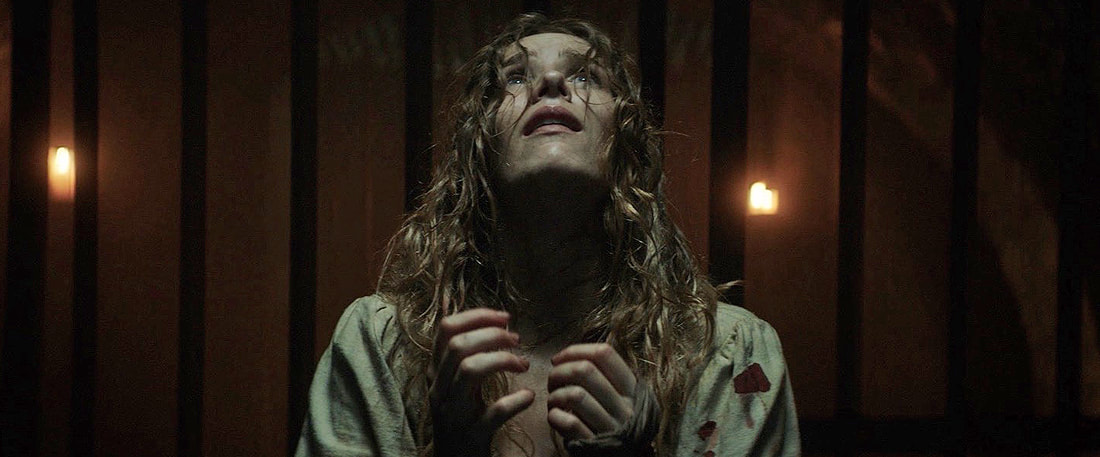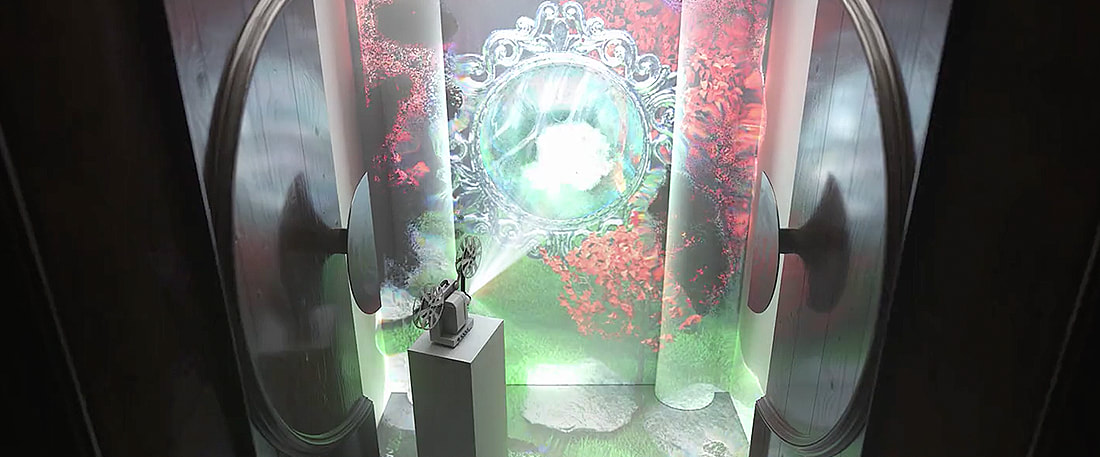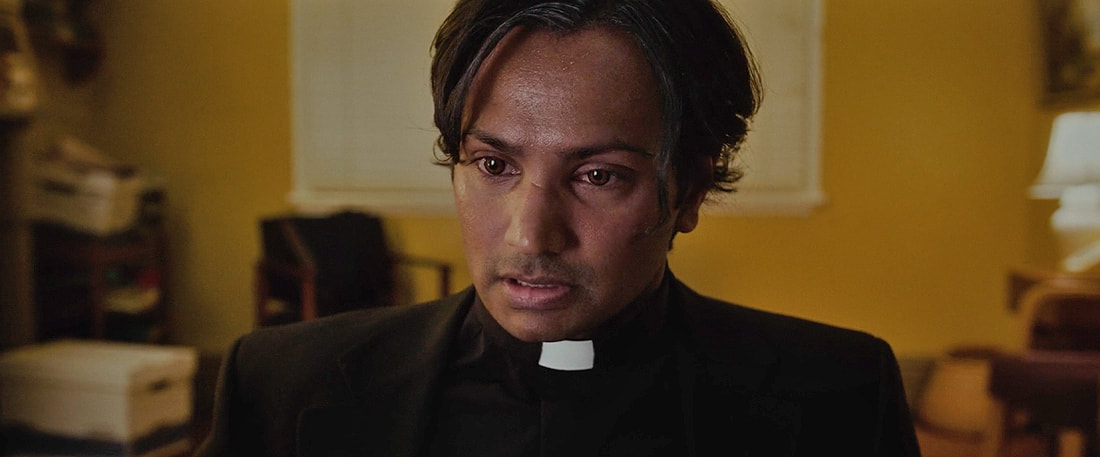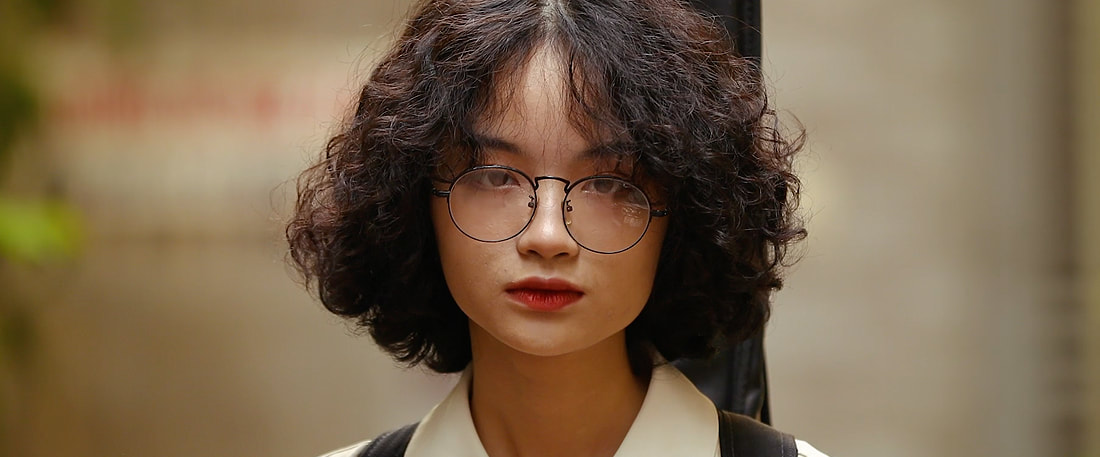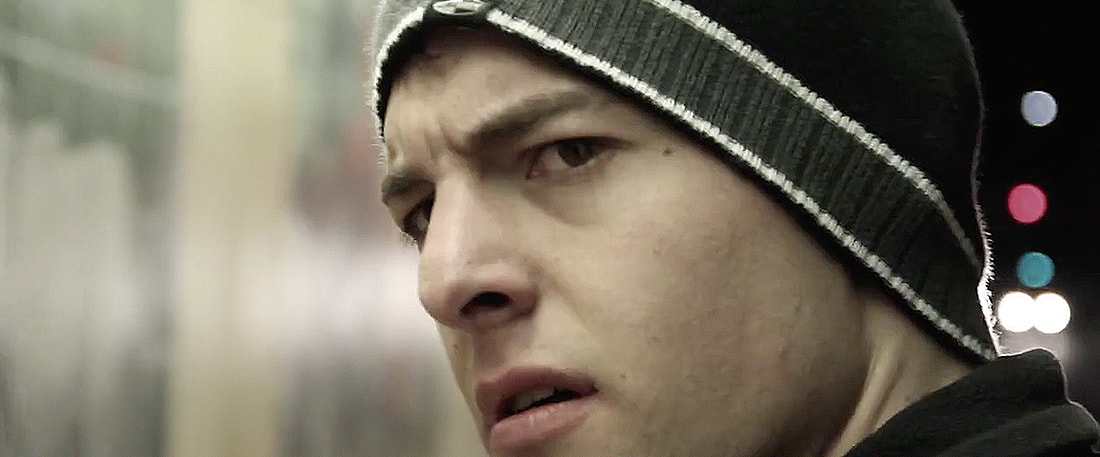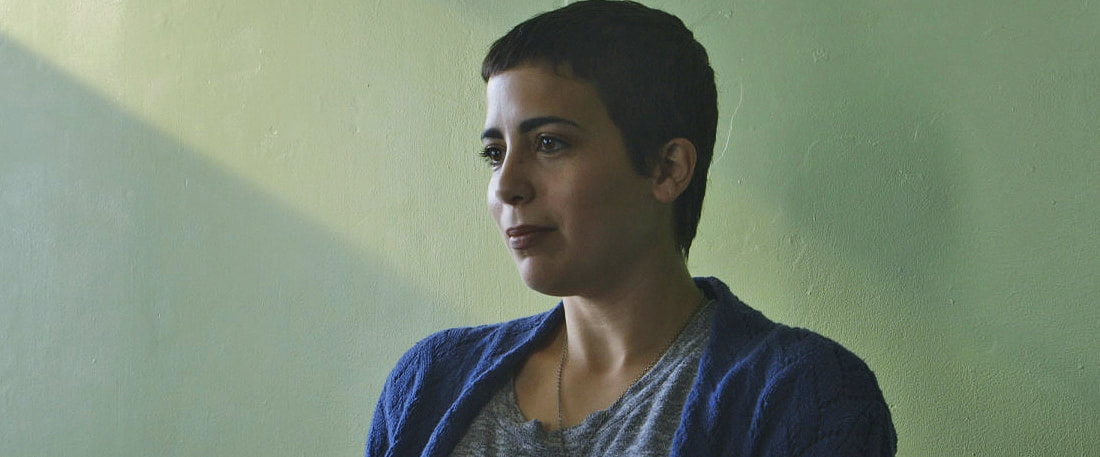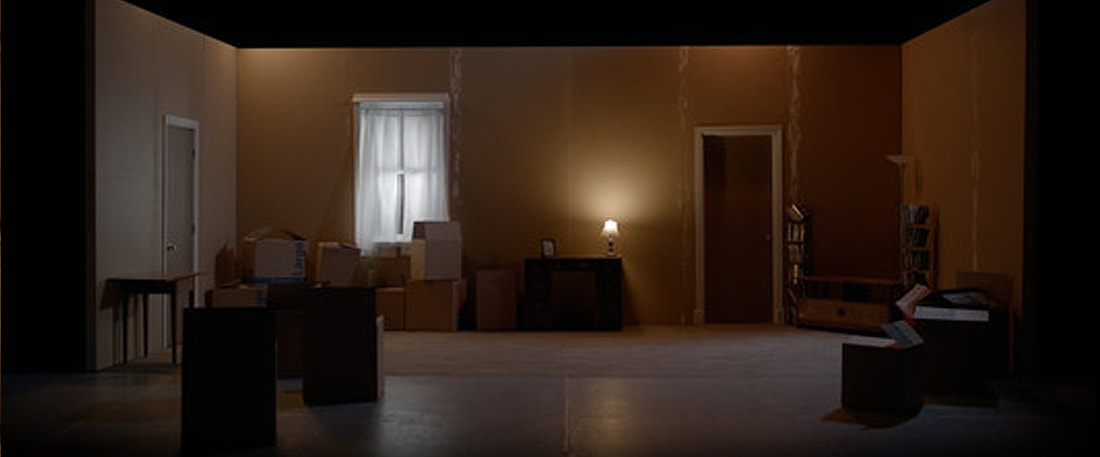AA.I. GENERATOR ★★★By Adrian Perez
Saiko Watabe’s film is hauntingly believable. At the rapid pace that we’re developing technology to help us, for example with Siri and Alexa now on the rise and ever-present in pretty much every household, it’s just a matter of time before they’re intervening in our lives on a deeper level;-as to whether or not we should break up with our boyfriend or girlfriend (as Watabe explores in one of her film’s vignettes). Watabe explores A.I. taking over our very conscience, making us co-dependent and almost incompetent in utilising our social skills to advance our personal agendas. Where Watabe strikes gold is in the execution of the film’s visual effects, particularly the intricate details of the lab at the A.I. research/development center. As the film soars in this arena it begs for the same calibre of execution in its cinematography; a flat unlit image although it can be a strategic and most rewarding stylistic choice, here makes for some rough results -inadvertently cheapening the final product. My biggest problem is with a plot hole, one in which Tomoya (Ako’s boyfriend) posts of his walk-of-shame on social media whilst in a relationship with her. A story event that triggers Ako’s disequilibrium -but one that I can’t help but feel isn’t accurate nor reflective of real life. Or is it? If Tomoya really is that much of a jerk, then that cruel action is not effectively delivered nor conveyed. Subtitles are a bit lost in translation. It’s in polishing these finer details the film could transcend and embrace its higher power. This is a powerful film, thought-provoking, one in which Watabe focuses more on advancing the plot as opposed to getting down to the psychological aftermath of such altered-lifestyle. We get a small glimpse of this inner exploration in the nightclub’s opening scene,-where Ako is literally stalked by her A.I. counterpart taking on a physical body identical to her. It’s truly disturbing. The film could have been more impactful had it gone in this more surrealistic direction. I would imagine this film to take on the shape of Darronofsky’s Black Swan. Watabe's an ambitious filmmaker who's only just getting started, I see her championing the more technical aspects of her craft whilst also polishing up her storytelling style to be more immersive and enticing. AMAZING GRACE ★★★★★By Adrian Perez
Amazing Grace is a most powerful documentary film that found me crying through a smile, which is not something I knew was possible. I have to commend Grace Fisher for offering herself to teaching us a rare masterclass in life and living, but not just through her experience,-but in how she has configured herself to live her life-altering illness (Acute Flaccid Myelitis). For such a young soul, Grace valiantly pushes past the impotence of her situation to embracing a most inspiring resilience and positivity. That’s one of the biggest lessons in life, in how we can’t control what happens to us, but we can control how we react. Montgomery achieves in her feature directorial debut what many audiovisual documentarists fail to do, and that’s essentially to tell a story. Documentarists are so careful not to intervene in the reality of what they are documenting, they go onto lose any sense of responsibility in creating a cohesive narrative structure -in their documentary’s final architecture/assembly of all its material. I have to credit Montgomery for siding us with Grace from the get-go, in her family’s pursuit for answers. Grace goes to find refuge and answers for what she’s going through in the only things that have ever given her true meaning and happiness, and that’s her family and music. It’s most inspiring to see Grace go onto achieve some pretty spectacular things that can take a long lifetime to achieve; from having an entire orchestra play her original composition ‘Waltz of the Waves’, to creating her own Foundation and meeting her hero Academy Award-Winning composer Justin Hurtwiz. And these are just to list a few! I’m deeply moved to see this young music prodigy persevering past her setbacks in living her wildest dreams. Amazing Grace is not just a documentary about Acute Flaccid Myelitis, it’s much more than that; it’s about Family, Perseverance, Optimism, Positivity, Ambition, Happiness... It’s about the most intrinsic things in life we must anchor ourselves on when our status quo is truly challenged. Together we can truly conquer anything. Thank you Grace and the entire Fisher family and production team for lighting a torch of hope for so many out there who don’t know where to go to seek answers. You’ve just given it to them. Keep changing the world one day at a time, you’re my hero Grace Fisher. BBRYERS CUCUMBER TOSTINO'S ★★★★★By Adrian Perez
Having read the blurb, this turned out to be a totally unexpected hit for me. Hall’s Bryers Cucumber Tostino's is a new all-time classic that begs for a feature-length treatment. Hall and his team provide a masterclass in comedy, there’s not a misused moment on the page nor on the actors’ part in their renditions of such colourful and quirky characters. It’s so riveting to see all aspects of filmmaking achieve sky-high results here, from Patrick Tamisiea’s bewitching and hilarious performance, to the exhaustively witty dialogue and hilarious script, to the film’s cinematographic calibre. The team provide a masterclass in comedic timing, they’re operating at a tempo-rhythm that is very hard to achieve, and they’re to be envied on the Hollywood block. The sheer ridiculousness of the situation with a man-child camping in a road store waiting for his mum to come back to collect him, is a high-concept and sets-up for a unique film we have never seen before. It’s such a relief to say that the team can boast in pride at their achievement in creating a high-class comedy spectacle. This is unlike anything you’ve seen before, you’ll be ugly-cackling from the restless laughter. This transcends to become a new all-time comedy classic for me. Bryers Cucumber Tostino’s deserves the big screen, the world is dying to meet him. BUKAHARA - HAPPY ★★★★½By Adrian Perez
Frericks has inspired the song’s visual treatment in Bukahara’s exquisite soulful material and humble beginnings as street musicians. Capturing real people of different ages, sizes and ethnicities smiling infraganti in various street corners, and having us gaze into their eyes (windows to their souls) on close-ups -is a most compelling creative choice to watch; providing for a truly raw music video and one that feels personal to this clan of musicians. As Bukahara sing ‘will you still be dancing on when you’re old? Dancing makes you happy when you’re down, down, down…”; Frericks opts to get up close and personal with the ensemble cast, shaking them out of their comfort zone to dance on-camera and with one another, forcing some irresistible smiles and tender moments. It is the music video’s visual effects that I find most compelling, seeing our real subjects transform from their young selves, in old reels and sepia photographs, to their actual selves in those replicated poses and close-ups. It’s often I’ve seen an artist’s song misconceptualised in its music video treatment; not only does Susanne Frericks capture magnificently the very essence of Bukahara’s new single ‘Happy’, but she also bewitches us with state-of-the-art digital ageing visual effects. Go watch it now and get ready to dance to this soulful upbeat new jam! BUTTERFLY ★★★★★By Adrian Perez
Foster not only orchestrates Butterfly towards a film of the highest technical calibre; from the film’s intricacy in its costume and production design, to its superb casting choices and cinematographic style; but serves us high-class entertainment by opting to subvert our deeply-rooted belief system. Naturally, a film about a gorgeous fashion model stranded in the desert after her car runs out of gas -to then meet a creepy Lone Ranger, is going to make us fear the worst. Foster cleverly plays with that very preconceived seed we’ll implant for ourselves in the watching of the film; she excruciates us in waiting for the inevitable that never comes, opening up a million questions as we reach the film’s payoff. Foster teaches a rare masterclass in visual storytelling. I have to commend Sullivan’s rendition of the hip and quirky Alice, who’s magnetic to watch in the role. Dialogue is incredibly well constructed. Butterfly is refreshingly unpredictable, Foster superbly turns a genre on its head to provide a one-of-a-kind enriching cinematic experience. BUZZ, BUZZ, BUZZ ★★★½By Adrian Perez
Party Hard Films (PHF) are at the top of their game right now, they are rapidly claiming a hotspot as one of Britain’s most exciting new film houses to watch out for. Buzz, Buzz, Buzz is an important film for the clan, to see if they can deliver the same level of artistic quality and technical rigour after setting the bar high for themselves with The Job. I’m enthralled to say PHF are building a high-class film slate for themselves, they’ve done it again. PHF are to envy for their tenacious grip on dark comedy, much of that down to Howy Bratherton’s brilliant writing instinct and most intricate performances.-Spectators will find themselves ugly-cackling at some irresistibly funny faces and eyebrow lifts Bratherton serves us. The sheer ridiculousness and relatability of the protagonist’s situation (with his neighbour’s loud motorbike escapades all sorts of hours of the day driving him loco) make for a truly hilarious vignette. From the get-go with Bratherton wearing socks and sandals, you’ll be laughing out of your seat. The Morrells do a superb job of materialising Bratherton’s penned script, they’re to envy for their arresting cinematographic choices and tactful colour grading in the edit room. Where PHF do need to refine themselves ever so slightly is in their tempo-rhythm and pacing when editing; there’s a tendency to linger on some shots a bit too long or fade to black, it’s only in that point I see an opportunity for this work to reach slightly higher ground. Buzz, Buzz, Buzz is one of the best short films of the year; in upping the bonkers in its building crescendo I think the film could hit that “new all-time classic” spot The Job rightfully claimed. Exceeding your own success is a good problem to have, I commend you PHF, keep serving us comedy gold. I’m eager to see what’s next. DDJ HOUND DOG: THE DIRECTOR'S CUT ★★★★½By Adrian Perez
Jon Jacobs pays tribute to his co-director Migel Delgado and the brilliant Tina Leiu in a fortuitous director’s cut rerelease of DJ Hound Dog; a highly-stylistic gem from the early 20s that begs for a newfound audience, through the aggrandised exposure and accessibility of modern streaming technology. This director’s cut is one of the few positive offsprings of the Pandemic; with Jacobs having acquired the rare luxury of time,-he puts it to good use into polishing up good’ol DJ Hound Dog ready for a new generation. DJ Hound Dog is nothing short of a nostalgic treat; from its fisheye shots to Elvis throwbacks in its original score; it’s a rare film that manages to encapsulate so vividly in its stylistic choices the frantic “sex-drugs-and-rock’n’roll” lifestyle that comes with being a DJ. Having its original techno music play pretty much throughout the whole film is a masterful stylistic choice, in the depiction of a DJ’s life story. Though I can’t help but feel there was a missed opportunity in completely dropping it to great dramatic effect, for example during Johnson/DJ Hound Dog’s crisis moment towards the ending of the film. In rereleasing this relic, it could find some possible backlash in its male gaze and uniform representation of women. Though all are tall, white and skinny, this film was groundbreaking for its time in Cat’s bisexual tough chick; a multi-career-defining performance for Tina Leiu with her song “To The Club” topping the dance charts worldwide. The ensemble are brilliant, all cast turn-in bewitching performances; but it really is Jacobs who shines as this “innocent” and almost-accidental ladies man, whose quirks even the toughest of women can’t resist. DJ Hound Dog will be spinning at Amazon Prime tonight, so you better gather a few friends and go check it out. Frantic, provocative and highly-entertaining, DJ Hound Dog is the only film of its kind. A dear film to Jacobs which marked his career and personal life. EEARTHLY ★★½By Adrian Perez
Tristan Sparks-McMahon’s new film Earthly is a promising proof of concept/trailer for a monster movie. The micro-short’s set-up is inciting and timely with the current Pandemic; our couple at the forefront of the story find their relationship tested and completely ruptured in their inevitable overstay at a desolate farmhouse whilst on their weekend trip away from home. Tristan is a tenacious visual storyteller, throwing in just enough cues or “visual breadcrumbs” (as I like to call them) for the spectator to figure out what’s going on. We instantly grasp this couple have been stuck for a long time (weeks/months) wherever they are and shut out of a global crisis that has killed their radio and car engine. It’s in their verbal argument that we slowly piece the puzzle together as to their situation but never truly discover what “natural disaster” the world’s confronted with; Tristan suggests sea monsters in his introductory statement prior to the film starting. This is one of the film’s possible downfalls, this introductory disclaimer is so bold and the Inception-esque sound design to accompany it wraps us and sets us up immediately for something epic, but then the scene to follow it I can’t help but feel is a bit of an anti-climax. Tristan implants a strong epic idea into us, and working in such a constrained 4-minute film space, I would expect the scene to follow to have a strong visual correlation to it and live up to the epic scale of the text set-up. Instead Tristan opts to anchor the film on its protagonists and interaction in a dialogue-heavy scene; the awkward pauses work -but the performances feel one-layered and beg for more. The film’s cinematographic calibre is ravishing, but in both the writing and editing of the film there’s a lack of a building crescendo, instead we’re suddenly interrupted with the artificial sound of an air-raid. I can see the potential in Earthly and what Tristan was trying to achieve here, but I can’t help but feel it lacks better execution and requires the slightest tweaks in its arrangement to deliver on its promise. But Tristan’s a talent powerhouse who's only just getting started, I’ll eagerly await to marvel at his next epic. EN TUS BRAZOS ESTA NOCHE "IN YOUR ARMS TONIGHT" ★★★½By Adrian Perez
Gonzales achieves a formidable job of not “injecting” too much drama into what’s otherwise quite a dramatic storyline; that of a maid becoming pregnant with her homeowner’s baby in his being unfaithful to his wife, but then deciding to have the baby -in then being able to camouflage it through her newly-formed relationship with the homeowner’s son. It’s quite the stir, and one that allows plenty of tendencies to up the drama unnecessary -usually through too much music and/or dialogue. But my deepest respects go to Gonzales, who's unafraid to let his scenes breathe. The parallel storylines and naturalistic filming style make for a memorable drama, the film's original score throughout the credits is exquisite. It is perhaps in the finer technical details and a lack of even deeper character studies that the film misses out on a higher rating. But this is a memorable naturalistic drama that compels us to want to see Gonzales’s next film and witness his evolution as a filmmaker. There’s an undeniable individualistic cinematic style growing. We look forward to seeing what Gonzales directs next. HHEARTSTRUCK ★★★★By Adrian Perez
In many ways filmmakers are essentially film “architects”, their biggest responsibility lies in ensuring the fictional world they create to base their story and have their characters inhabit is as believable and authentic as possible. That’s Thomas Kent’s biggest achievement with Heartstruck, he confidently creates vignettes we can all relate to, and he plays with the temperamental imbalance of life in perfect sync and harmony; from the leading protagonists’ good night turning into a bad night to then turning into a good night again. He subverts comedy as a genre and breathes new life into what could be considered stereotypical characters. The result is a raw honest film that instead of troubling itself in upping up the jokes, it’s not afraid to strip itself back and switch gears to something more raw and sincere. Ian Thomas Kent is a promising filmmaker who’s only just getting started, there’s a strong vision and style at work here. Ian needs to now push his technical calibre to help his creative vision transcend even more. HENRY & EDDY ★★★★By Adrian Perez
What is most striking about watching Henry & Eddy is the maturity, tenacity and understanding of cinematic storytelling Benjamin <<La Malice>> Nlomngan exhibits in the making of his film at such a young age. Sure, there are technical imperfections,-most notably the choice of slow-mo editing on a low frame rate creating some clunky results; but then, there are moments of sheer artistic brilliance. That moment when Henry (Benjy) walks backwards (out of focus) in witnessing Eddy (Benjy's brother William Bouhaik) taunting him as he approaches him down the corridor is a powerful abstract choice;-interpreting that feeling of us wanting to vanish from uncomfortable circumstances and wanting the ground to swallow us up. Here Benjy proves himself to be a stylish auteur. It is in his choice of extreme close-ups where Benjy isn’t scared to explore true terror, that of a young man’s crumbling grasp on reality and world collapsing in coping with his father’s suicide. Kids at Benjy’s age make movies with action sequences and fake blood; young filmmakers tend to be scared to get so close to a subject with the camera, let alone tackle the psychological impact a stressful or emotional life event can trigger on a person -from a psychotic episode to long-lasting schizophrenia. I’m enraptured by Benjy’s mature viewpoint of the world and firm grip on his craft. What is most commendable of this film is seeing both real mother and son behind the making of this film, and succeeding in creating such a raw mother and son story. Victorine Nlomngan offers a most professional performance onscreen, but a most vital role offscreen supporting and nurturing his son’s passion for filmmaking. Artistry runs in the family, Benjy and Victorine prove to be the coolest mother and son out there. Benjy's other film of this year, 2037: Under Artificial Justice, contemplates a mature topical issue -one in which we can action change; but I see Benjy tackle a much bigger enemy here, one who we can’t always control nor defeat: ourselves in a deteriorating mental state. Benjamin <<La Malice>> Nlomngan is a force to be reckoned with. I can’t wait to see what the Nlomngan clan do next. The future is bright. II, RESIGN ★★½By Adrian Perez
From my film critic chair, I usually find myself having to score down films due to their lack of technical and cinematographic virtuosity to rival their great artistic intent. I find myself with quite the opposite dilemma in critiquing I, Resign; we have here a film that soars in its technical quality. Jay Horan’s cinematographic calibre and tenacious editing are arresting to watch. Where I, Resign struggles is in its creative choices to narrate the story of an introverted Indian software engineer who finds himself marginalised in his office job to the point of committing suicide. It’s powerful thematic material of discrimination (institutional discrimination as Mohan claims in his statement), that couldn’t be more fitting with the current black lives matter movement. Horan opts however, to tell this story with a voiceover testimonial -as the protagonist writes an email sharing his horrors to a bunch of renowned journalists, before pointing a gun to his throat. The downfall(s) of doing this is that it won’t work as a technique unless the writing and performance are subtle and not over-dramatised. The way the film is currently constructed is too indicative, the monologue’s writing is heavy, then over-acted and the music to accompany it is too epic. Everything amounts to make for a melodramatic film. As a spectator I can’t help but switch off immediately, these creative choices can be repellent, because it automatically sways the film to be a propaganda piece as opposed to a story to enjoy and decipher. Where this film halts from reaching higher ground, is in telling us what happened to the protagonist to want to commit suicide, as opposed to showing us. We’re seeing the protagonist in a ritualistic state preparing himself for suicide, digesting the horrors he has lived before doing the final deed; but had this being a silent film, with minimal music and exhibiting the institutional bullying at play it would have made for a much stronger piece. Epic editing can be off-putting for modern audiences who are more demanding than ever, long gone are the days of serving us emotions on a stick. Mohan has half the battle already down in proving to be a masterful cinematographer and most agile editor; it’s in refining himself in pushing for strictly visual storytelling (in the style of Winding Refn’s Drive) that he’ll achieve his maximum potential, less is more. INN COMMUNICATION ★★★By Adrian Perez
Since its conception in 2017, Team Rebelution Films (TRF) have not only built-up an impressive film slate (of eight finished distributed films and three more baking in the oven) in record-timing; but have from day one nurtured and consistently delivered on their ethos of diversity and inclusivity both on/off-screen. I commend TRF’s CEO Esther Mira in her admirable leadership heading-up this film house filled with exemplary core values and pure heart. I’ve been fortuitous now in studying three of their works. Inn Communication (dir: Esther Mira) has all the right ingredients to be a triumphant comedy epic, from its stellar production value, choice of location and intricate costume design to its cinematographic calibre and charismatic ensemble cast; where the film struggles to reach higher ground is in its mishaps in tempo-rhythm and pacing, it ultimately comes down to more tenacious film editing. We linger on the performances too long across all three works, creating unnatural pauses affecting both the performances and overall comedic timing of the films. This is what I’m finding to be the most disputable common trend halting all three works from their maximum glory. Inn Communication is a quirky, relatable and most charismatic vignette with a stellar performance from Mira at the very core of it. It’s in a simple visit to the edit room that can push it from fair/watchable to sheer excellence. INNER-CRITIC ★★★By Adrian Perez
Tara Tusher’s new micro-short film Inner-critic is a bewilderingly ethereal visual experience; its cinematographic calibre and intricate detail in its production design make for a truly dazzling watch. It’s a film that from the get-go aims to open up questions as opposed to answering them. Having also studied Tusher’s other 2020 quarantine film Conductor, it’s clear that’s one of the recurring thematic signature points to Tusher which makes her an auteur in her very own right. As riveting as Inner-critic is to watch, I can’t help but feel something’s missing. In Tusher we have a talented newcomer and rare auteur, who has unapologetically defined her style and identity as a filmmaker in limited screen-time, which is most commendable. I’m eager to see Tusher work on the much bigger canvas of a feature-length film; to see her unique style intertwined with the development of a narrative story and its characters -wrapped in a world created out of Tusher’s wild and free imagination. Tusher’s a filmmaker to watch. JJULES CORONADO - YOU DANCE IN THE DARK ★½By Adrian Perez
Jules Coronado’s new track is magnetising, it gives me serious Matrix vibes, something from the soundtrack the Wachowskis elected to accompany their epic trilogy. Working within the musical terrains of progressive trance and electronica, I can see why Jules opted for the enriching cinematographic results of coloured neon glow sticks whilst altering between various frame rates. The music video’s conceptualisation I find interesting, but where Coronado’s visual piece halts from truly transcending is in its overall execution. It could be down to Coronado lingering on the same concept for the entirety of the music video; which with a track of such long duration (9 minutes), demands for a visual treatment that can sustain itself for the entirety of it. The intertwining of more than one concept for such a demanding duration would have pushed this music video's success I feel. I think inevitably a better camera could have also allowed Coronado for more ambitious cinematography of a higher calibre, providing an even more enriching viewing experience. Coronado has a brilliant idea here but not big enough to fill up such a big canvas, that of a 9-minute music video. A spectator wouldn’t be able to sit through the entirety of the music video without checking his watch. And even if this is the type of music video you watch a bit like a desktop screensaver whilst under the effects of happy chemicals, it lacks the cinematographic calibre of a better camera to truly excel in that arena. I want to see Coronado push his craft to the next level, to places he didn’t know he could go. I see potential here. |
IVAN THE TERRIR'B'LE ★★★★★By Adrian Perez
Ivan Cardoso remains to this day one of world cinema’s best kept secrets, but why? Abbade masterfully imposes the question and tackles this exploration into Ivan Cardoso’s film artwork in a most exemplary fashion. The fast-paced vibrancy/momentum and highly creative editing style, in juxtaposing a wide breadth of archival footage and fiction reconstructions to Ivan’s stories,-make for a truly memorable and entertaining documentary. You could say Abbade’s creative construction to the documentary subtly pays homage and respects to Ivan’s cinema, which was also unique and one-of-its-kind. The documentary’s quirky architecture is only one of its many commendable characteristics, but it really is in Ivan’s substance, character and hilarious recollections of his past experiences that we find most joy. It’s in the documentary’s carefully constructed historical account that we come to understand the many obstacles Ivan’s cinema faced; from cultural perceptions, to production logistics and censorship in distribution, Abbade builds the argument that Ivan’s work was regarded ‘forbidden cinema’. There’s much to praise on Abbade’s tenacity as an audiovisual documentarist in building his argument; from the get-go we theorise Ivan Cardoso as a Film Provocateur, an Auteur, a filmmaker whose work’s erotic nature and boldness was forward-thinking and necessary in a wider revolutionary pop art movement to liberate us from sexual taboos. Ivan, The TerrirBle is a fascinating docu film that pushes past the Terrir movement to exploring the repercussions of censorship on art as a form of liberalism and self-expression. Abbade and Cardoso deliver a most thought-provoking and entertaining documentary, I wish cinema history university lectures were this entertaining. Chapó! LL'USIGNOLO SUL MARE "THE NIGHTINGALE ON THE SEA" ★★★★By Adrian Perez
When you deconstruct L’usignolo Sul Mare (“The Nightingale On The Sea”) to get to its very core, it’s fundamentally about a woman finding much needed solace in a rare regression back to a much easier and happier time. Mele debuts her directorial career in much exemplary fashion, concerning herself more with the intricacies and power of visual storytelling than anything else. In very much the same incidental manner in which thoughts and memories manifest themselves to us; Mele has Roberta Pazi’s wondering inner psyche embody a distant vision of a young girl, wearing a raincoat in the middle of a busy pedestrian setting on a hot summer’s day. Peaked by this mirage Pazi ensues onto pursuing her, in search for answers. In a most enthralling vignette of a bench conversation between Pazi and who we come to understand is her younger self, Mele transports us to the seaside through the sounds of the waves on a powerful close-up on Pazi; but really, Mele has transported her spectators to wherever it is they need to go. L’usignolo Sul Mare is of the highest technical calibre with a most formidable performance from Pazi; but it’s in Mele’s philosophical exploration and visual metaphor for life -that she leaves a long-lasting impression and insatiable craving for more. LE TESTHARDE - APATHY★★½
By Adrian Perez
Le Testharde’s new single Apathy is a quirky upbeat jam with a rather crude message at the very core of it, a social critique on how we’re sleepwalkers “living” and breathing apathy. A catchy anthem pleading we lead empty existences with suicidal tendencies, sad but partially true. Daniel Mercatali explores the raw underlying message of the song by breathing new life into it through its music video treatment. Instead of opting for the more obvious dark cinematographic style, he keeps to a light-hearted concept and satires our relentless use of technology as our impending doom. Mercatali succeeds in his conceptualisation when keeping to a controlled filming environment, in this case shooting a group of women determining bystanders’ fate by playing around and swapping their mobiles phones as if playing poker; whilst gathered around a weed bong and a colourful alcohol fest. The scenario is so bonkers but fitting for the music video, depicting these women to be mythological goddesses, or our very own ancestors even, laughing at us and humanity’s current detrimental existence. The moment Mercatali steps out of this carefully-shot scene to follow various bystanders in the street and in their various habitats, the music video’s cinematography drops in its technical calibre. Mercatali’s music video serves us a compelling concept and reaffirms Le Testharde’s powerful social critique in their new single Apathy. It’s in pushing the music video’s technical quality that it could reach higher ground and leave a long-lasting impact on its audience. MMANASANAMAHA ★★★★★By Adrian Perez
Much of what makes a short film triumphant, in this day and age, is its shareability factor. Modern audiences are more savvy and demanding than ever, and filmmakers have an added-pressure to not only tell great stories onscreen, but to grip their audience pretty much immediately. This is where Manasanamaha soars, in engaging us from the get-go with the most relatable vignettes and a subtle “battle of the sexes”, where our lead male protagonist in Viraj Aswhin narrates his way into showing us everything wrong with his past girlfriends. Deepak Reddy then masterfully closes off Aswhin’s boy testimonial to lead neatly into inciting us into everything that’s wrong with boys through a girl testimonial. Masterful. Deepak visually encapsulates the highs and lows of a relationship in the most innovative and entertaining way; first through living the relationship through Aswhin’s lens quite literally with most intricately rigged point-of-view shots. But it’s in the film’s elaborate backwards transitions, which are most elegant and mesmerising to watch, where Deepak creates a truly transcendent cinematic spectacle that will resonate with a universal audience. Manasanamaha serves us high-class entertainment value of the highest degree, supported by the most complex camera rigs/cinematography and film editing, whilst leaving an imprint as the innovative film that it is that could easily inspire a new wave movement in cinema. Manasanamaha deserves a feature-length treatment. I will be following Deepak’s filmmaking career very closely to see what new spectacle he’ll treat us to next. MEMORIA ★★★★By Adrian Perez
It’s many filmmakers and wider multi-disciplinary artists who have tackled their perception of a post-apocalyptic utopia, there’s a whole genre for it, look it up! It’s refreshing to see Tejada tackle in such a raw and honest short film what some of our biggest struggles would be, and they could range from something as simple as enjoying freshly-grinned coffee. It’s a film that couldn’t be more fitting with our times, during this Pandemic we have regained much needed mindfulness in appreciating the small things in life, for good things never last forever. Tejada’s Memoria succeeds in its casting choice for its lead. Tisa Howard is bewitching to watch wrapped in her post-apocalyptic blanket fashion; much depth lies in her eyes underneath those goggles as she indulges in tasting coffee again. The intricate detail of its production design and cinematographic calibre are clear merits of the film; where the film betrays itself from a higher rating’s in its sound engineering -the transitions in/out of the musical score need polishing. A visit to the edit room can easily unlock Memoria’s maximum potential. Tejada’s post-apocalyptic epic is one of its kind and proves herself a filmmaker to watch out for. NNEUTRALS ★★★★½By Adrian Perez
Neutrals’s buddy comedy storyline is not one we’re unfamiliar with, but Horne delivers one of the best buddy comedy films out there regardless. Neutrals is so triumphant because it’s so unique in its style and identity, from the charismatic cast in its dorky nineties-styled duo, to its brilliant writing and punk/rock’n’roll score;-Horne’s not afraid to push for a genre-bending dark comedy, where Brabow’s Chris getting knifed in the back is ironically a moment that’ll have you ugly-cackling and in hysterics. This is a film bolstering with personality and fully-owning its identity; it’s very clear Horne’s influences and he soars in a rare arena to champion, that of dark comedy. PPARALLEL ★★★½By Adrian Perez
Parallel is the offspring of a most inspiring initiative to empower foster kids through the art of filmmaking; this initiative baptised under the name 'Kids In The Spotlight'. Here David Mahmoudieh leads five foster youths in bringing their penned script to life. It’s inspiring but disturbing to see such young masterminds bring forth such a mature viewpoint on the world,-in the film’s subject matter of sexual harassment in schools. Parallel is a raw and honest reflection that kids don’t live in a world that permit them to be innocent any more. The film’s visual conception is high-class to watch, from its cinematographic calibre to consistent performances; where the film halts from perhaps truly transcending,-is in its overtly-constructed scenes. Minimal dialogue and completely stripping the use of an epic orchestral score (from Man of Steel) would make for a much more powerful and raw film. The way the film’s constructed is melodramatic and we can’t help but feel put-off by it; making this feel more like a propaganda piece, as opposed to a minimalistic film that lets us digest the horrors of the situation for ourselves. Also -I would challenge the fact that only one form of sexual harassment was studied. The latest national survey does indeed indicate 48% of students suffer from sexual harassment within an educational institution; the film would have soared had it anchored its second scenario on a different manifestation of it, for example peer-sexual harassment. Much of it can happen in the locker room from body-shaming to other more grotesque forms,-which I’m not afraid to admit I’m a survivor of. This film’s highest respects surface from its conception and coming into being. Most admirable initiative and talented young filmmakers who I do hope continue to nurture their passion for filmmaking. It’s great to see such young filmmakers use this canvas as both the self-therapeutic tool and social-change machine it very much is and can be. PATRICK ★★½By Adrian Perez
Patrick is a film raving with potential, but it just lacks in its execution. Had Ferguson focused less on advancing the plot and more on exploring the lead protagonists' inner psyche, this could have been a home run. The film's major downfall is that everything is too on-the-nose/"forced", much to it down to the film's melodramatic editing style. We are 'spoon-fed' how to feel in the score's overuse, which although exquisite, is not strategically used; flooding scenes that are tense enough and can stand on their own ground without the need to further enhance their dramatic quality. For example, the Christmas dinner scene where David’s mother covertly shames him by choosing a sermon that attacks David for his homosexuality whilst saying grace (wicked ways/stray/lost soul). This scene could have been ten times more impactful, had Ferguson dared to let awkward silence do its job, the score's usage here spoils the scene. Patrick's second downfall is in its constructed dialogue being too unnatural and “fake” across some moments, dialogue can be so indicative at times it’s off-putting. For example, in David’s mother confronting him having found out her son is gay, or the way Patrick’s friend goes over to see David at the cafe to notify him of Patrick's fatality. The unpolished dialogue rubs off on its cast affecting the performances. Harris is the only one who manages the material best with moments of sheer excellence, Harris excels in his shy quirky creation the character demands. Now, Leomiti's rendition of the character is too lit down,-this should be a character full of life who leverages the introverted David into fully accepting and opening himself up to love. Leomiti's interpretation was too cold and dry, to the point we think Patrick’s not gay and is going to kill David. Him being a mortician adds to this idea. This is Ferguson’s daring first attempt at a monster of a movie, one with huge potential to be a tear-jerker award-contender. Half of the battle was won in the film's undeniable high-class cinematography and impressive production design. Ferguson should be incredibly proud of his debut; in his outmost respect for Film he shows a desire to use every single toolbox utensil available to him. This is a formidable directorial debut. Now Ferguson, remember, less is more. PEPPERMINT ★★★★½By Adrian Perez
Jesse Cook III serves us a most timely and unique film on the underground business behind sustaining the desirable public image of governmental leaders, against some unimaginable odds. Here in Peppermint, Senate candidate Candace Van Houten pushes her team into convoluted damage control to cover up her pregnancy and scheduled abortion. It’s a plot with infinite scope, but I’m enthralled that Cook has opted instead for a more intimate character study of a woman in power in the midst of a personal crisis. Cook pens a most gripping one-location film gifting his cast with some sublime dialogue and a most intricate acting exercise. The leading trio are captivating to watch, but Kellermann steals the show in her solo scene taking a pregnancy test in the confines of a public cubicle, it’s a most arresting performance deserving of recognition. There’s a lot to love about Peppermint, I’d like to highlight Cook’s directorial skill in creating perfect tempo-rhythm within his scenes and opting for a subtle score to accompany them. Peppermint is one of the best films of the year. PER CHI AMA LA MUSICA "FOR THOSE WHO LOVE MUSIC" ★★By Adrian Perez
Breathtaking visuals of Venice and intricate sound design to rival Christopher Nolan’s signature obtrusive score to his works. Pastrello makes a daring attempt to use the canvas of Film we’ve been given in new experimental ways, he opens up questions as opposed to answering them. Pastrello rebels and fights the urge to use his craft in the way he has been taught. He succeeds in fighting the urge to create something cohesive and concerns himself in expanding the film’s iconography and semiotics, but in the process hasn’t quite managed to create something gripping and entertaining to watch. It’s a bold attempt in wanting to create something revolutionary -but I feel it’s a film that tries too hard to be different resulting in something a bit pointless to watch. Pastrello is yet to fill the canvas with something truly unique and riveting spectators could marvel at for hours. Although it’s an experimental film of the highest technical calibre, I can’t help but feel Pastrello wasn’t able to grip us in something entertaining. PERMITTED ★★★½By Adrian Perez
Permitted wraps us into an atmospheric character study, which manages to turn a somewhat predictable narrative on its head with a most perplexing twist of fate. I say predictable because of the gutting preconceptions we make in handing over a gun to a slightly autistic OCD teacher protagonist. In leveraging the genre codes that come with a psychological thriller, we can only fear the worst… There are quite the few subtle social critiques Lori Lyle implants within Permitted; in placing the spectator in a position of power for the most part of her film -by relying on our socially-constructed preconceptions; to then overthrowing them with a climactic twist enhancing the viewing experience and teaching us a lesson or two. Lyle essentially points her finger at us exclaiming: “Ha! You think you know everything going on around you, but you don’t!”. Lyle offers a rare masterclass in screenwriting, one in which she employs a most subtle parallel storyline to lead us into her cataclysmic turn of events and life lecture. Lyle strategically plays with narrative structural devices and visual cues to voice necessary social commentary on mental health disability, paedophilia, gun violence and mass-shooting murder-suicides. Where the film soars in its intellectual debate, it begs for a more ambitious cinematographic style. Though the film’s naturalistic style I vouch for, I would’ve liked to have seen a more intricate visual language employed to enhance the film’s storytelling in the same way Jeremiah Tabb and Norb Lyle’s original score so majestically does. Permitted makes for an arresting film with Will Nicol turning in a career-defining performance. RREMEMBER/TOMORROW ★★★★By Adrian Perez
This is a gorgeous philosophical visual spectacle, one in which Veach compels us to enjoy a surrealistic non-linear story of a couple undergoing different fates in their different chance encounters at different stages of their life. Veach serves us a challenging but most necessary lesson, in opening ourselves up to love and life in the darkest of times. In exploring him having lost his dad at the beginning of the film and opening himself up to her in that chance-encounter, we see a long-lasting relationship blossom. But in reversing that and anchoring that decision on her, we see how her psyche is not up to pursuing such opportunity -we are aware this decision amounts to a double-tragedy for her although she's unaware. Veach proves a film philosopher, he translates his poetic philosophy into the most endearing dialogue, and marrying that with top performances and most arresting cinematography full of visual meaning -we are in for one of the best romantic dramas of the year. ‘Chapó’ Ari Veach! Stellar work. RESOLVE ★★½By Adrian Perez
Where A Good Shake (dir: Lauren Campedelli) and Inn Communication (dir: Esther Mira) serve us the quirky and high-class comedy we distinguishably identify with the Team Rebelution Films (TRF) brand; director Austin Dragovich sways this powerhouse into uncharted creative waters with Resolve. Resolve is TRF’s darkest film yet with a woman seeking revenge for her mother -who she never met and was brutally murdered whilst still carrying her in the womb. Dragovich succeeds in creating truly stirring and tense moments in Rani’s (Poonam Basu) brutal attack scene and Kim’s (Esther Mira) long anticipated encounter with Amory (Heather Ludwig),-author of all her pain. It’s in Ludwig’s standout performance, the film’s more stripped-back pacing and shift in cinematographic style (in that red harsh lighting during Rani’s murder scene) that Resolve soars; where it halts is in its technical shortcomings, which have probably arisen due to the fact that this film was ambitiously produced as part of a 48-hour film challenge (lack of sharpness in its close-ups, a need for more intricate sound engineering and further layers to add for more complex/multi-faceted performances). It’s a daring vendetta story, but one that begs for much more when encompassed with its more enriching sibling films as part of the TRF umbrella. I’m enthralled to see what comes next out of this film powerhouse. RESTLESS ★★½By Adrian Perez
2020 has brought about a dystopian lifestyle of science fiction movies, one of long-term confinement and solitude. Kamaria William’s new micro-short film Restless, feels like a morning greeting/infomercial a character in a science fiction/post-apocalyptic movie would wake up to, every-single-day, whilst locked away in a chamber against his will -to set him-up for the day. Sound familiar? Restless starts off with a series of images of a man doing vigorous exercise on an expanding small screen with a most soothing and professional female voiceover to accompany them, one that could easily rival Siri or Alexa. From its more formal moments (“Today is the day you wake up focused, positive and ready to work on yourself”) to its more sassy and relatable moments (“You’ll be the badass you always wanted to be”), Restless’s success is anchored in its written motivational speech and voice delivery. Restless’s only downfall rests in its cinematographic calibre not coinciding with its auditory merits. Williams is a promising newcomer whose evolution as a filmmaker I’m most enthralled to follow. A most pivotal message at a time where we feel most deflated and in need of motivation, Kamaria serves it to us. RUSTY ★★★★★By Adrian Perez
Rusty does exactly what a micro-short film is meant to do, but so many fail to do; to entice you and leave you wanting more. Daniel John Peters achieves this to astronomical lengths, wrapping us into a mundane world of a “normal” character who ends up being an abductor with psychopathic tendencies. Our lead protagonist in Mike Sengelow is so likeable and innocent in his first few frames onscreen, it’s slowly through a couple of visual “breadcrumbs” that Daniel hints at the possibility of danger for Eve Gordon’s character of a neighbourly woman passing by concerning herself for “Rusty’s” whereabouts (Sengelow’s lost dog). It’s in Sengelow’s lack of intervention in calling out for Rusty, and then in the coincidental request for Gordon to hop in his car to chase after "Rusty" that we fear the worst. Exactly, you guessed it… Rusty is a thriller in its very right, and an extremely effective and enjoyable one at that. It’s in its extremely mundane setting that Daniel creates such horror for his spectators. This really is a vignette of Britain today, -abduction and human trafficking is on the rise, and we have more missing people than we can count or dare to count because of it. Daniel’s directorial grip on his story makes for a truly raw and daring film, one that’s so well done it begs for commissioning for a much bigger scale feature-length film. Daniel shows us in exemplary fashion how a proof-of-concept is done. Daniel teaches a masterclass in storytelling and filmmaking in his latest vignette Rusty, it’s a high-class thriller exhibiting a most elevated level of cinematographic achievement. SSELF-SERVE ★★★★By Adrian Perez
Self-Serve is a unique film that takes place at the hustle and bustle of a restaurant, but it’s more in the inner moral functionings of this diner that Wilms anchors his story. We meet Matt, a character inspired in Wilms’ younger self, one who’s lost and “numb” (as he describes himself at one point) working at this dead-end job, when he almost seems settled with the idea of conformity. A wealthy upbeat regular inspires him to aim a little higher. His fling Lisa gets fired from the job for being accused of stealing from the cashier. What starts off as him confronting his coworkers and getting down to the truth to redeem Lisa, ends up in him contemplating leaving town with all of Lisa’s accumulated tips. A new start at life seems seductive and when we think Matt ends up corrupting himself, Wilms never truly offers us such closed-ended finale. Matt’s letter he leaves in Lisa’s letter box could be a goodbye letter or all of her tips. It’s a raw film with a refreshing storyline. The film’s success weights on the life lesson Wilms presents us and its cinematographic style and production design. Wilms has much success in creating a believable fictional world where the action of the story takes place. The film’s possible downfalls are in its sound engineering and performances, which although decent don’t push beyond being one-layered throughout. Wilms is a daring cutthroat filmmaker who isn’t afraid to get to the harsh truth of life, he’s one to watch and one who is only just getting started. STROMBOLI - AS LONG AS THE HEART BEATS ★★★★½By Adrian Perez
Much of this documentary’s success is down to Hanspeter Aliesch's unmeasurable curiosity for uncovering the type of life that comes from living at the remote unpredictable island of Stromboli. No man’s land so unpredictable due to its lively volcanic activity, it had most of its 5,000 residents flee the island, with only around 500 or less currently residing there. Aliesch’s tenacity in combining performative, expository and observational techniques make for a riveting historical account on the island; from the arresting aerial and street cinematographic coverage of the island, to the most charming anecdotal interviews with the locals, to the gripping suspenseful score he intersperses throughout to give the same lingering sense of threat the island residents feel. Aliesch proves a highly-skilled audiovisual documentarist. As described at one point, Stromboli’s lifestyle is not a luxurious one, Aliesch orchestrates image and sound in exemplary fashion to creatively interpret life there as both archaic and poetic, but tragic and strenuous. Aliesch’s documentary is a love letter to Stromboli’s locals and their valiant integrity and outmost respect for “the Mountain”. Aliesch takes everything relaid to him in his audiovisual research and interprets it with the outmost respect, very much in the same way that nature demands respect. Stromboli - As Long As The Heart Beats is a high-class documentary, half of any documentary’s battle is won in choosing a truly fascinating topic or subject; but it’s then in Aliesch’s masterful filmmaking style and innate curiosity that push this towards a truly poetic and memorable documentary to watch. ‘Chapó’ Hanspeter! |
TTHE COUNCIL ★★★★By Adrian Perez
Thompson returns to the big screen with his grittiest epic yet, The Council; ready to confront us with a mirror to current society, a reflection we’re not going to like and one we’ve been avoiding at all costs. Thompson pours most experiential pain into his new canvas; and though we see him make time to star in his new film in the complex anti-hero vigilante role of Khalid, it’s in ‘Messiah’ he has moulded a character in his own image and substance. Thompson proves himself a world-class film provocateur. The Council provides a raw social-ideological study into South Central Los Angeles, one in which he explores the idea of a “vigilante group” to defy the morally corrupt (from crooked cops to gang members); but how even the good-willed can be transfixed to push past their personal vendetta into harming the innocent. The film bolsters in strong performances and a high-concept; but it’s Thompson’s gritty storytelling style that’s most riveting,-in never overdramatising nor over-fictionalising story key beats he creates a most authentic world for us to inhabit. Thompson makes it a point to end in tragedy, it’s the only way to have his message transcend beyond the screen. Not many films start in disequilibrium to then end on the same note, but this is Thompson’s imitation of life through his art; and it’s in this uncompromising decision in not offering a satisfactory finale for his viewers that I commend him. The world of his story is as doomed as we are. It’s the very point he makes. THE END OF THE LINE ★★★★★By Adrian Perez
Any writer whose vocabulary includes the word ‘bougey’ is a top-writer in my opinion, but really, Lavers’s level of authenticity in his constructed conversation here is unparalleled. Lavers never ceases to amaze me, pushing his directorial versatility in The End Of The Line -a more understated mature entry to his musical spectacle, The Violinist. Set in present day Britain on a more modern train carriage this time around, Lavers transports high tensions for a pair of star-crossed lovers in their reencounter after nine years. Lavers’s latest cinematic exercise is a treat. Image and sound are perfectly orchestrated to equate both Madeline and Johnny’s perceptions in their rediscoverings of one another; both Benedita Pereira and Charles Warburton offer the most bewitching onscreen chemistry and a rare masterclass in screen acting. Pereira ultimately steals the show in her riveting rendition of Madeline, a gift of a role. Fantastically paced and most sophisticated in every way, The End Of The Line depicts a daily tragedy, more perverse than the fatal end to Romeo & Juliet’s love, in a pair who are too afraid to step over the line to reveal their true feelings for one another. Lavers dares to unveil the harsh truth of life in directly confronting us with our self-saboteurs -and consistently proves himself a high-class Film Provocateur. THE EVE ★★½By Adrian Perez
The Eve is a highly experimental film that opens up more and more questions as it ensues, to then answering them all at once in a pretty neat payoff that's most impactful. Though The Eve's finale is masterful, this motion picture feels untidy. Machnich packs in so many visual cues and such epic music, they amount to an excessive use of style that can feel a bit exhausting to watch after a while. When I deconstruct the narrative from all its 'cinematic tricks', it’s essentially the story of an introverted eight-year-old only child, whose wild imagination makes him lose touch with reality. This child’s psychology is already challenging and unstable; it's in the double-tragedy of finding out he’s adopted and opening up his presents to find body parts dispersed across them, the act of a serial killer camouflaged as a neighbourly fat Santa dropping off presents as a loving act that embraces the Christmas spirit, -that this kid would very well suffer a psychotic attack so severe it could send him into oblivion to a point of no return. Machnich has such a rich and unique high-concept in his hands. I can’t help but feel his film deserves a reimagining, considering Machnich filmed this back in 2015. Machnich is a horror mastermind with a unique style -one who needs refinement to truly transcend; with better technical execution this could be one of the greatest new horror films of all time up there with The Shining. This film's concept is so twisted and unique, you can’t help but love it; but it does beg for better overall technical execution. THE FALL LINE ★★★★½By Adrian Perez
Knowing where to place the camera is elementary to good directing; but subverting that learning and purposely deciding to conceal the action of the scene from your spectators,-is where a director proves their genius and strikes gold, providing a rare masterclass in cinematic storytelling. For a first-time filmmaker, Maryann Lonergan proves exceptionally confident in materialising her vision of a film, that from the get-go opens up questions as opposed to answering them. The Fall Line depicts a most psychologically disturbed character who finds himself stuck in a cabin in the woods, in a father-son dynamic he hates with his superior. Their isolation and his sheer existential crisis drive Mike Greca into a mute and stare-penetrating performance that is ravishing to watch. As the film advances, our lead protagonist wakes up from a long nap to find his superior Murphy (Mulhearn) missing; on his search we come to find him dead in the woods. We never see Murphy’s body to know the cause of his death, and in the time that Everette (Greca) took his nap a multitude of possibilities could have erupted into that outcome. A film that places that responsibility on its spectator to decide is one that passes the test of time. Lonergan is a filmmaker to watch. THE FINAL CODE ★★★★By Adrian Perez
Carlo Fusco ups the stakes and cuts in deep in his reenvisioning of the Fritzl case. We’ve already had Lenny Abrahamson loosely explore this ‘Room’ within which Elisabeth Fritzl found herself captive and sexually abused by her father for 24 years, having birth to seven sibling-sons. But it’s Fusco and Lykos who take on the difficult task of confronting us with the whole truth. Fusco directs a most daring script penned by the superb Ieva Lykos who also takes on the taxing role of Elisabeth Fritzl in Sharon. Lykos’s performance in the unassisted childbirth scene will imprint on you. Much of the film’s calibre is in its performances all round; a new star is born in Syama Rayner who proves a scene stealer as Buck’s short-lived abductee. Fusco proves most mature in his directorial tone. With such a heavy-plot driven script many directors would lose themselves in the task of advancing the plot forward; but unafraid to slow the film down he masterfully peels off Sharon’s decaying psyche and gets up close -serving a most riveting character study. The film’s technical quality is also commendable with a most arresting original score. The Final Code transports us to hell on earth into Elisabeth Fritzl’s father’s prison in a gritty and most visceral film. Will you dare enter? THE RECKONING ★★★★½By Adrian Perez
Neil Marshall sways away from high-pressure mainstream content assignments, to reconcile his itchy urge to fulfil his inner cinema; something his busy schedule hasn’t permitted for the longest while. Nothing screams horror more than the capital trials of our ancestors’ past. The Reckoning’s most haunting for the fact that it depicts tribulations that haven’t fully been left behind, the tyranny of men is still ever present. Little did Marshall know that his thrilling new horror and exploration into witch-hunts would take on new meaning since its early conception; 2020 has brought about two new epidemic plagues in the form of COVID-19 and racism. Much like a lone (widowed) woman was deemed a “witch” to her fatal sentence in the 16th century; what back then seemed an irrevocable lesson went onto happen again to more cataclysmic ends. The last century saw tribulations against Jews (the Holocaust), homosexuals (conversion therapy) and black people (slavery, death row…) to name a few. Women to this day are still enslaved into human trafficking… It’s in our underlying societal truths and underground mafia horrors that The Reckoning provides a mirror into our never-changing humanity and proves a most harrowing watch. In this cautionary tale Marshall steps onto familiar ground, longing for his dark and twisted creative roots. Serving us a highly-arousing horror spectacle with a firm grasp on his authorship, it’s fun to see Marshall camp in the editing booth to firsthandedly edit his latest original film. Marshall’s unquestionably at the top of his game and orchestrates a big-scale production yet again to the highest calibre of cinematographic achievement; from the get-go we find ourselves rooting for Kirk, who’s bewitching to watch, in a superbly-paced exuberant plot. When a renowned film director like Marshall reaches their highest technical pique and grasp on the craft, all I have left to ask is to ruthlessly experiment and continue innovating the form. There’s something cathartic about The Reckoning, much like the gift of a character he has penned for Kirk in her running away from the angry townsfolk with their pitchforks; I can sense Marshall longing to break free through the making of his new original film. He struggles to break free completely in overpowering every frame with Christopher Drake’s score; which although most exquisite, begs for more strategic use. The score's over-reliance has the tendency to stress spectators even more in what’s already a tough watch, making for a frantic Michael Bay-esque viewing experience, which is one to avoid at all costs. Marshall also enslaves himself in advancing the plot, when a deeper exploration into Kirk’s inner psyche would’ve pushed the film’s artistic quality. Marshall caresses this quality in Kirk’s hallucination and dream sequences, with the Devil fornication scene inciting us into a new horror realm we are never fully transported to. The Reckoning is Marshall’s most mature and personal work to date; sporadically tapping into artistic horror, Marshall caresses a new experimental quality to his work. It’s in unapologetically surrendering to his creative freedom that he’ll transcend as an auteur and leave an imprint, I long to see that day. Welcome home Marshall, you needed this film more than we’ll ever know. THE WHITE ROOM ★★½By Adrian Perez
Ulman provides a masterclass in self-shooting, a new filmmaking trend on the rise, in his new epic The White Room. I say epic because Ulman’s ambition and scope for this film are formidable. Ulman is a self-sufficient autodidact and rebels against having to limit his talent and curiosity to one facet of the production process; he takes on the rare task to write, direct, produce, edit and act altogether -but not just one role, but six roles. This onemanship process is the film’s strongest suit, allowing for a most personal declaration and philosophical exploration into our very existence and some of life’s biggest questions. Unafraid to experiment, Ulman attempts to embody the functionings of our very mind as if it’s a bunch of intransigent individuals trapped in the same room, leading undoubtedly to a lot of arguing and bickering. It’s a terrific concept and one that reminded me of a lot of Pixar’s Inside Out, only that a live-action interpretation of the mind is a more challenging and ambitious experiment. Ulman succeeds in his versatility as a performer, in some of his sublime scripted dialogue and intricate production design; with the most impactful negative self-perceptions graffitied on the walls (e.g. words such as failure, envy, pain). The film’s most notable downfall arises from its narrative structure; just like when you tell a story around a campfire -a film needs to hook its spectators as soon as possible into a mission, to make us accomplices in solving the character’s problem. Every single all-time classic depicts the story of a character wanting something really bad but having trouble getting it. The more we accentuate this problem the more entertaining the viewing experience. The White Room although inciting as a concept, struggles to push past being a mere stream of consciousness, which would work better as a theatre play. It’s not until the very end that we feel a sense of threat and high stakes for the different embodiments of the mind as one wants to commit suicide, ending all of them at once (“if one goes we all go”). Had Ulman introduced this sense of threat and high stakes from the get-go, the spectator would be able to invest themselves more into the film. It’s in polishing up the script and in Ulman having a bit more awareness of storytelling principles that The White Room misses out on a higher rating. Although I’m a demanding critic, I’m a big fan of Ulman’s unapologetic individualistic filmmaking style and I think Ulman’s only just getting started. I’m eager to see what Ulman goes onto do next and to witness his growth and evolution as a filmmaker. TRIPTYCH ★★★★★By Adrian Perez
Through my career as a film critic I have acquired an even more profound adoration for the art of Film than I already had; just like any other art form, filmmakers and artists of any form alike use their preferred canvas as a vehicle for self-expression and exploration. Sergey Maslov tackles in his new visual masterpiece the biggest enigma that life has thrown at us: Where do we come from? What does it all mean? Why are we here? Triptych is a jaw-dropping visual rollercoaster ride exhibiting astronomical levels of technical and artistic 3D CG architectural achievement. I say rollercoaster ride, because there is such intricacy in the intertwining of his film’s three-act architectures. It’s Sergey’s strongest suit; extensive research and development have gone into the film’s created environment. As a result we end up with a labyrinth of complex visual cues that explore the conflicting relationship between science and religion in explaining how the universe and life came into existence. As we dive into the odyssey that is Triptych, we can’t help but focus on its scientific portrayal of how the universe came into being, the Big Bang, with a planet going into gravitational collapse. As we then move into the museum chamber with a film projector heating into an explosion; we can’t help but correlate this visual cue to what happens in a violent collapse -with the outer layers of a star ejecting into space in a supernova explosion. As Sergey explores complex astrophysics, he constantly keeps scientists in-check and throws in religious cues (some more subtle than others); to keep to a holistic interpretation and apport to the religious belief of creationism. These cues range from the tree of life front and centre at the very beginning of the piece and dispersed throughout the film; the Garden of Eden; to the portal at the end opening up to reveal our creator in our very human image. Sound familiar? It’s Heaven’s gate, the very gateway to Heaven. Also -notice the long ’T’ on Triptych in the title, it’s 'the sign of the cross'. A triptych in itself is a religious artefact, it’s an altarpiece. The cues are infinite. Sergey’s level of research and complex execution is most formidable. A third complex layer to Sergey’s film is in his interpretation of our human grasp/understanding on our very existence. These complex religious and astrophysical cues are hang up in a museum gallery, one that twists and turns as if we’re being sucked into a hypnotic spiral. It’s a most extraordinary visual interpretation to resemble our very own existential crisis. Life can be a turbulent rollercoaster ride, and we go through these turning points where we put in question our very existence. Sergey pushes his craft to the next level in his latest film Triptych, to be more than the respected filmmaker and animator that he is, but proving himself to be a Film Architect, Philosopher, Auteur and Provocateur. Triptych serves epic visual poetry. VVINCENT ★★★★½By Adrian Perez
Andrews has conquered sacred terrain with his new film Vincent; he succeeds as a storyteller creating great empathy and depth for his characters in record-timing; he succeeds as a film provocateur delivering the thrills we so long for; and as a visual mastermind and film technician giving an unforgettable masterclass in cinematographic depth and style. He encompasses a “holy trinity” in championing these three pillars and every department of filmmaking imaginable for a director to concern himself with, and does it in style too! I can’t credit Vincent enough for being a horror masterpiece, it’s a riveting short film that grabs you from the get-go; where it perhaps loses out on a higher rating is in some performance inconsistencies -but they're a minor observation. This truly is a film that transcends. Andrews's biggest achievement is in not losing himself in the thrills of exploring the supernatural, and in uncovering the true horror of what it’s like to be a servant priest punishing himself for his homosexuality. One of the best films of the year. WWE TO ME ★★★★By Adrian Perez
Chase achieves an exquisite observational documentary, one in which he’s not afraid to follow and linger on his subjects and their mundanity; his well-paced expositional style allows for some captivating aerial and street cinematography. His subjects are most charismatic, especially Det, a hip and quirky aspiring Vietnamese singer/model concerned with the more pressing agendas of equality for women and freedom of speech, in a land that’s not forward-thinking nor caught up with the western world, a land still recovering from its past trauma. Her agenda(s) and ideals of self-actualisation conflict with her parents’ generation, which was one of survival (in wealth and health); their post-war experience of a cruel communist policy led to much hunger, poverty and hardship -a time called the ‘Bao Cap’ era. We To Me explores this generational gap as a conflict, the choice of incorporating contrasting interviews between Vu/Chien and Det are what amount to the documentary’s greatest strength, diving into the harsh realities and cultural traditions of the time:-in the time-consuming rituals of the smashing of the rice; and in the luxury of having a bicycle to carry heavy stacks of rice from the government back home -make for truly enthralling interviews. Chase unobtrusively observes, he’s careful to never take sides nor influence his subjects’ interviews -and it’s fascinating to see both generations acknowledge and respect their differing values and ideals. It’s a documentary that doesn’t require a more interventional approach from Chase, in just its interviews we manage to come full circle and have the documentary’s imposed questions answer themselves leading to a satisfactory payoff. Chase incites philosophical questions in exemplary documentary practice and cinematographic style. WELCOME TO THE CONSPIRACY ★★½By Adrian Perez
Welcome to the Conspiracy is Sean Totanes’s blast-off into film directing. Totanes finds a most creative way to incorporate his artistic hand whilst tackling this big-scale audiovisual canvas for the first time. Totanes is renowned for his exquisite work as an illustrator/storyboard artist and craftsmanship in art direction, his most notable work in Netflix’s 13 Reasons Why. It’s endearing to see Totanes’s artistic roots translate so intrinsically onscreen, whether through Art’s paper allies or the film’s comic-book quality to it; Totanes achieves an irrevocable high-sense of style and identity. There are moments the film takes a darker turn, with Art’s inner demons taking physical shape in his lucid hallucinations; but for the most part this is a bright coming-of-age “boy meets girl” story with a dark edge in its agoraphobic grad conquering his fears to be with Mika. The cast are infectiously charismatic and Totanes injects hilarity into a rather complex condition in Art’s surrealistic moments and action sequences. As the film bolsters on its uniqueness and artistic quality, it begs for a more ambitious cinematographic style and better more refined dialogue. Some scripted moments halt the film often in being truly authentic. There’s an infectiously lovable and inciting quality to Welcome to the Conspiracy; Totanes is only just getting started, with some refinement and persistence in mastering this new craft, we’ll be in for the ride of our lives. WHOLEHEARTEDLY ★★★★By Adrian Perez
Why should one put up with the toxic influences within their life? Here’s a raw and brutal portrayal of such conceptualisation, one in which an immigrant Mexican woman carrying a pregnancy is faced with a crossroads in her life; of whether or not to leave her unfaithful alcoholic husband who she catches in the act with another woman or not. Trouble is, will she stand a chance as a single immigrant mother in the US? What about her Green Card? She “needs” him. Theo Francocci shows great tenacity in tackling Carmen’s character study through his visual treatment of her decaying psychological state; through blurry double-vision shots of Carmen waiting out the night in her car; to the supernatural apparition of her future-self in the mirror. Darren Aronofsky’s Black Swan could be a great influencer of Francocci’s. The world of the story Theo fabricates is most intricate and realistic. Most of the action of the film happens at nighttime, and Theo leads his team of filmmakers in providing a masterclass in night exterior cinematography. It’s most exquisite to watch. Andrea Mendez is bewitching to watch in Carmen’s skin, and does a great job even with some of the more wonky moments of the material;-which I think is the only downfall of the movie, in some of its dialogue which can be a bit disjointed and indicative in places. Francocci is a filmmaker concerned with the exploration of the human psyche, and succeeds in accompanying that study with gritty visuals and edgy sound design. Gritty edgy dark creative vision, utterly magnificent to watch. WITHOUT GOODBYE ★★★★By Adrian Perez
The world of Brigham’s new film Without Goodbye takes place in a bare-stripped apartment floating in empty space it feels. His Inception-esque score grips us up and makes us uneasy as we venture into this surrealistic environment; where objects then start to fly around as we hear a fight taking place, with the crystal table eventually cracking and presenting us with the worst possible outcome for its leading protagonist, who we are yet to see and meet in the flesh. As the short film progresses, we slowly unravel the floating space’s horrors as a man deals with the logistical aftermath of his loved one’s death (boyfriend/brother). Packing up his apartment and life away; it’s more the psychological makeup of this character Brigham dares to explore, making for a truly raw and haunting film. The film’s success weights on its main experimental attraction; an arresting visual manifestation of Brigham’s processing for his own personal pain and trauma. As innovative, unique and ravishing as this was to watch -it’s in some of its more technical shortcomings that it halts from reaching higher ground. When a filmmaker dares for their art to imitate life, as lived through their personal lens, they are gifting both themselves and the spectator with a cathartic experience that makes their art transcend and pass the test of time. Thank you Brigham for taking that leap, Without Goodbye is unlike anything I've ever seen. YYOU SAY HELLO ★★★★★By Adrian Perez
I still have goosebumps from watching You Say Hello, a film that’s so hauntingly accurate in depicting a homosexual man’s life (at least at some point in their life). Talbott creates within the confines of a family’s beach house -a world full of visual intricacies (or visual “breadcrumbs” as I like to call them), to capture our lead protagonist Mike’s personal psyche and vulnerability; in effect creating a fully realised and most fascinating character who we come to have an arresting empathy for. Not many writers can pen such profound empathy in such record-timing; but it’s then Holder who superbly manages to not only breathe life into Talbott’s pages, but have the world and characters of Talbott’s imagination transcend beyond the screen. Holder provides a rare directorial masterclass in his exploration of intimacy; he’s so very tactful in the film’s tempo-rhythm, not scared to let his scenes breathe to get to the film’s truth. From his tenacity in lingering on some shots for as long as they need to, to allowing his actors to find meaning in those awkward pauses, to strategically allowing a subtle score to come in at the right moments; Holder orchestrates everything at his disposal to an arresting effect, creating an electrifyingly real vignette of a doomed man longing for connection. Something we can all relate to -no matter if you are straight, gay, lesbian, bi, trans, intersex, pan, non-binary, queer/questioning and so forth. Both Pullen and Bellant are divine to watch giving high-class performances that no drama school can teach; their onscreen chemistry as these two penned opposites is bewitching to watch. Talbott and Holder cut to the feeling and the truth, it’s a film of the highest technical and artistic achievement that will pass the test of time and send shivers down your spine. |
- About
-
News Journal
- Press Releases >
- Film Reviews >
- Screenplay Feedback
-
Interviews
>
-
| 2023 |
>
-
SPRING CLASSIFIERS (28 APR)
>
- A SPECIAL BREAKFAST (Germany) · Savo Cubrilovic, Sarah Timm
- MAHOGANY (USA) · Allana De'nai
- THE STORY OF TITUBA: HAPPY 4 U (Sweden) · Jayce Landberg
- WE THE PEOPLE? (USA) · Sai Man (Simon) Zhao
- WHEN BUYING A FINE MURDER (Italy) · Gabriele Tacchi
- DON'T CRY (Germany) · Hisham Zreiq
- TROLLED (USA) · John F. Uranday
-
SPRING CLASSIFIERS (28 APR)
>
- | 2022 | >
-
| 2023 |
>
-
Competition Results
- | 2023 |
- WINTER CLASSIFIERS (21 DEC) >
- SUMMER CLASSIFIERS (31 JUL) >
- SPRING CLASSIFIERS (28 APR) >
- | 2022 |
- WINTER FEST (23-31 Dec) >
- SUMMER FEST (10-14 AUG) - ALL FINALISTS
- SPRING FEST (29 APR-7 MAY) - ALL FINALISTS
- | 2021 |
- WINTER FEST (16-26 DEC) - ALL FINALISTS
- SUMMER FEST (30 JUL-8 AUG) - ALL FINALISTS
- SPRING FEST (27 MAR-4 APR) - ALL FINALISTS
- | 2020 |
- WINTER 2020 FEST (15-31 DEC) - ALL FINALISTS
- AUTUMN 2020 FEST (30 SEP-4 OCT) - ALL FINALISTS
- SUMMER 2020 FEST (22-26 JUL) - ALL FINALISTS
-
Digital Cinema
- | 2023 |
- WINTER FEST (21-31 Dec)
- | 2022 |
- 🔒 WINTER FEST (23-31 Dec)
- 🔒 SUMMER FEST (10-14 AUG)
- 🔒 SPRING FEST (29 APR-7 MAY)
- | 2021 |
- 🔒 WINTER FEST (16-26 DEC)
- 🔒 SUMMER FEST (30 JUL-8 AUG)
- 🔒 SPRING FEST (27 MAR-4 APR)
- | 2020 |
- 🔒 WINTER 2020 FEST (15-31 DEC)
- 🔒 AUTUMN 2020 FEST (30 SEP-4 OCT)
- 🔒 SUMMER 2020 FEST (22-26 JUL)
- SUBMIT NOW
|
© 2020 Lonely Wolf, member of FILMFINITY SL. All Rights Reserved.
|
